


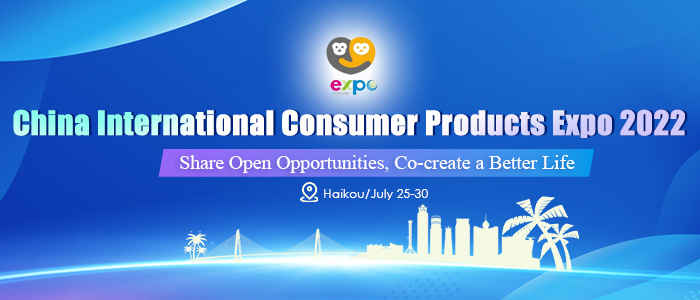
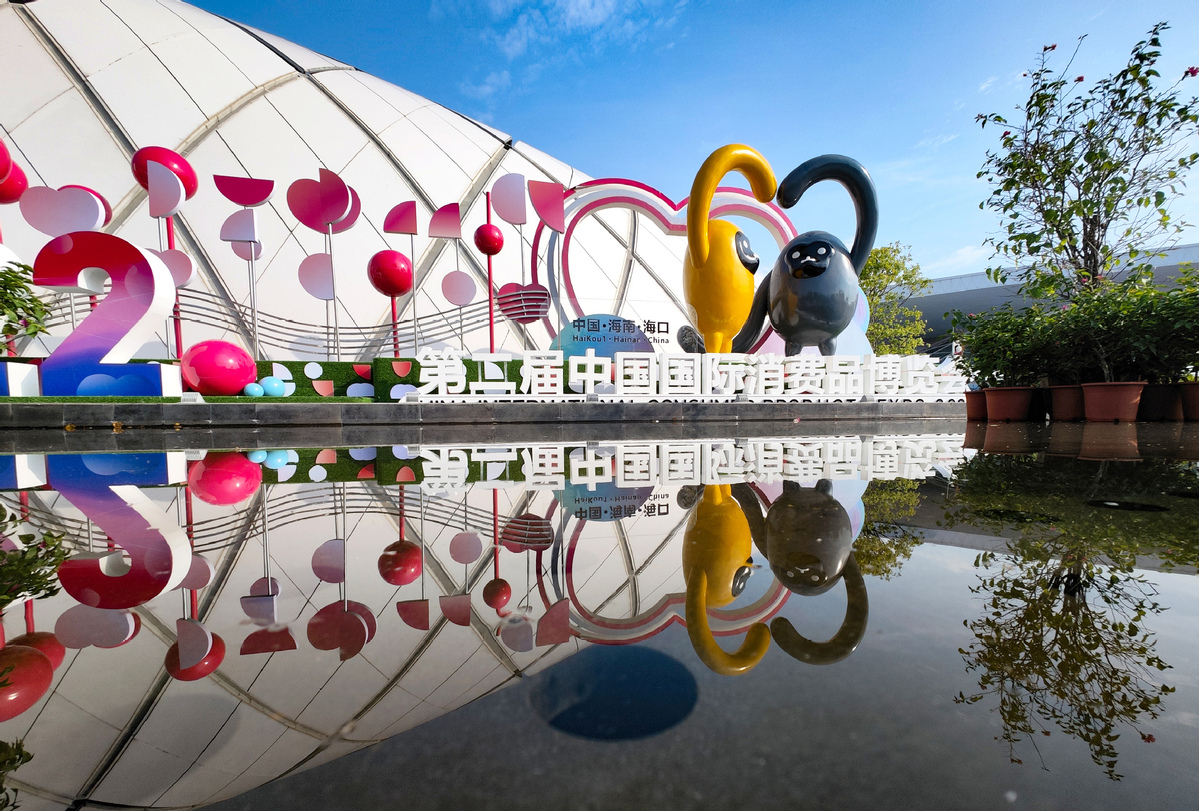
With the participation of more than 2,800 brands from home and abroad, the second China International Consumer Products Expo concluded in Haikou, Hainan province, on July 30. Over 90 percent of the exhibitors have expressed their intentions to attend the third CICPE next year, according to the organizer, Shanghai Securities News reported on Monday.
The expo, with exhibitors from 61 countries and regions, attracted more than 280,000 audience visits, and launched more than 600 products of over 200 brands.
Besides providing consumption upgrading opportunities to international enterprises, the expo also played its role as a "bridge" and a "window" to lead China-made products to the world market. Chinese brands such as Bloomage Biotechnology and Pien Tze Huang Pharmaceutical all brought their latest products to the expo.
On July 26, the second day of the expo, the Jin Xuan (Hainan) Holding Co Ltd signed a cooperation agreement with Kaiwo International Trading Co Ltd, to sell high-end foreign luxury automobiles supplied by JX Hainan under the duty-free import license in the amount of up to 350 million yuan ($51.81 million).
The Hainan Global Duty-Free Plaza also signed a strategic cooperation agreement with French fashion brand Karl Lagerfeld during the expo, to expand opportunities for business cooperation.
Thirty-one companies, including suitcase manufacturer Tumi, and Platinum Guild International, a marketing organization for platinum jewelry, signed up for the third CICPE on July 30.
According to the organizer, enterprises such as L'Oreal Group and Kirin Holdings Co plan to apply for larger booths next year to launch more products at the expo, said the Shanghai Securities News report.
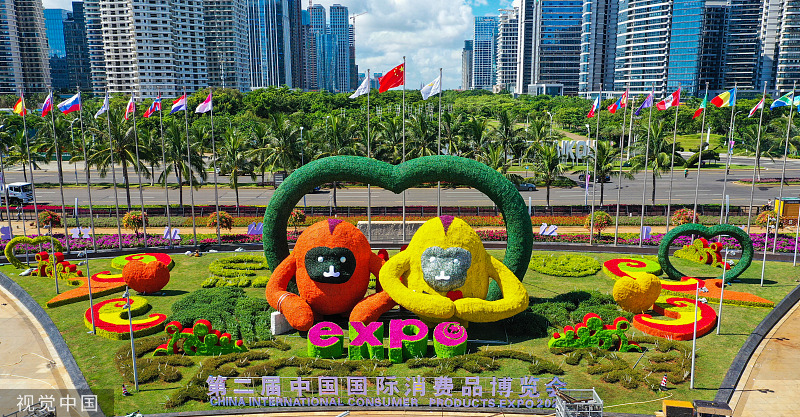
HAIKOU - Fabrice Megarbane, L'Oréal North Asia Zone president and chief executive officer of L'Oréal China, sees the second China International Consumer Products Expo (CICPE) as a signal of the greater opening-up of the Chinese market.
The expo, which concluded on Saturday in Haikou, capital of South China's Hainan province, attracted exhibitors from 61 countries and regions. Some 2,800 brands from 1,955 domestic and international enterprises participated in the exhibitions.
China is committed to opening up further and is increasingly determined to unleash the potential of its market by boosting consumption, Megarbane said. It was also the second time L'Oréal has exhibited at the expo, and it this year expanded its exhibition area to 625 square meters.
There were over 50 French companies and nearly 250 French brands participating in the expo held on the resort island of Hainan. France was the guest country of honor at this year's CICPE and, after China, the second-largest exhibitor.
French fashion brand Karl Lagerfeld and the Hainan Global Duty-Free Plaza on Feb 26 signed a strategic cooperation agreement to share the opening-up opportunities and accelerate the expansion of Hainan's consumer market.
Durian, coffee, snacks and various delicacies exhibited by Thailand's Charoen Pokphand Group were audience favorites during the event. "The expo is a very good platform and is in line with the development strategy of our company," said Xue Zengyi, senior vice chairman of the group's Agro-Industry and Food Business China Area.
Attracted by the preferential policies of the Hainan Free Trade Port, the group increased its investment in Hainan and established a global trade company in 2021.
Xue said the company hopes to import the world's best consumer goods into Hainan and then push them from Hainan to the Chinese market, and, at the same time, bring high-quality Chinese consumer goods to the world. Oranuch Wannapinyo, commercial consul of Commercial Section at the Thai Consulate-General in Guangzhou, said she believes that in participating in the expo, more premium and high-quality Thai brands will be promoted to the Chinese market and across the globe.
Foreign direct investment inflows, in actual use, increased 17.4 percent year-on-year to 723.31 billion yuan ($107.3 billion) in the first six months, according to the Ministry of Commerce. Vice-Minister of Commerce Sheng Qiuping said that during the expo, the number of foreign exhibitors and brands increased significantly, the international exhibition areas expanded, and the quality of economic and trade activities also improved, which shows that the expo's platform role has become more prominent and the Chinese market has become more attractive.
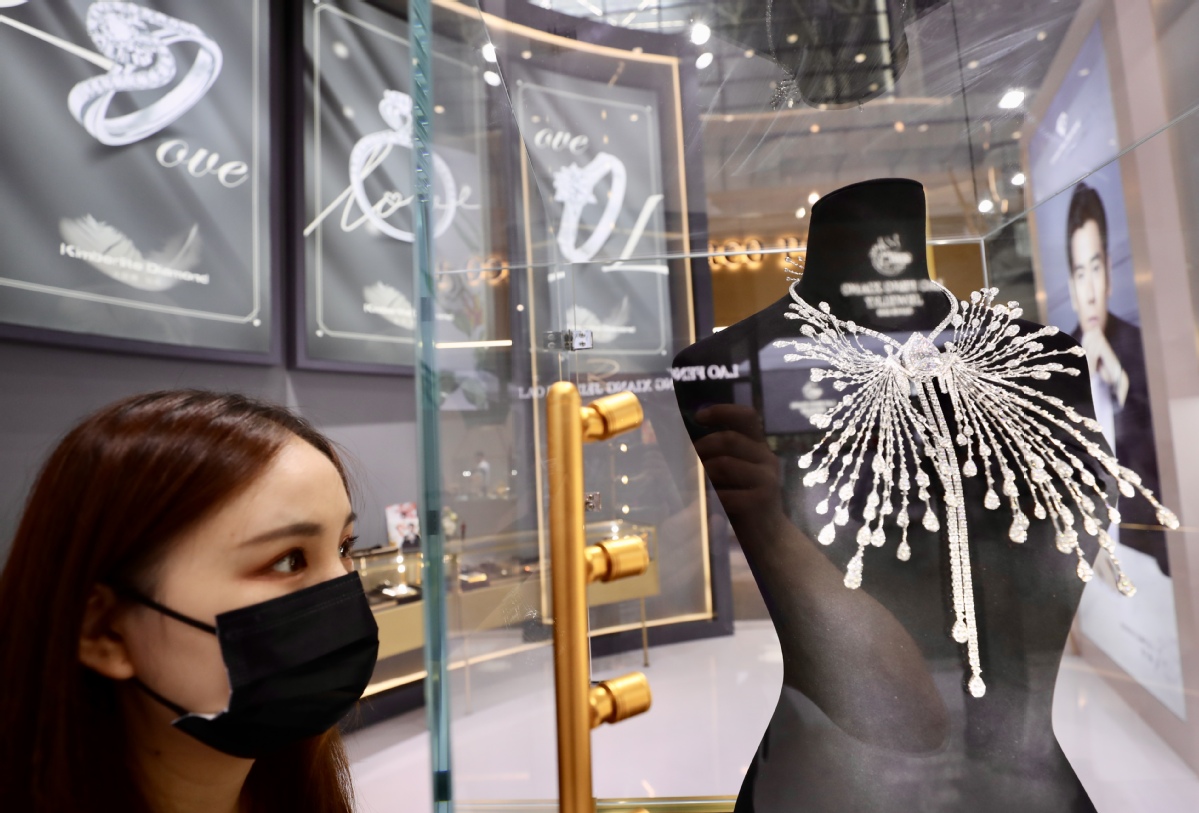
HAIKOU - The second China International Consumer Products Expo (CICPE) concluded on Saturday in Haikou, the capital of south China's Hainan province.
Exhibitors from 61 countries and regions attended the six-day expo. Some 2,800 brands from 1,955 enterprises home and abroad participated in the exhibitions.
The second expo received more than 280,000 audience visits, the organizer said.
The expo released over 600 new products. Yacht shows featuring over 200 yachts of 50 well-known brands were also held alongside the expo, according to the organizer.
Thirty-one companies, which are from the sectors of fashion, travel services, and jewelry, to name a few, have signed up for the third CICPE.
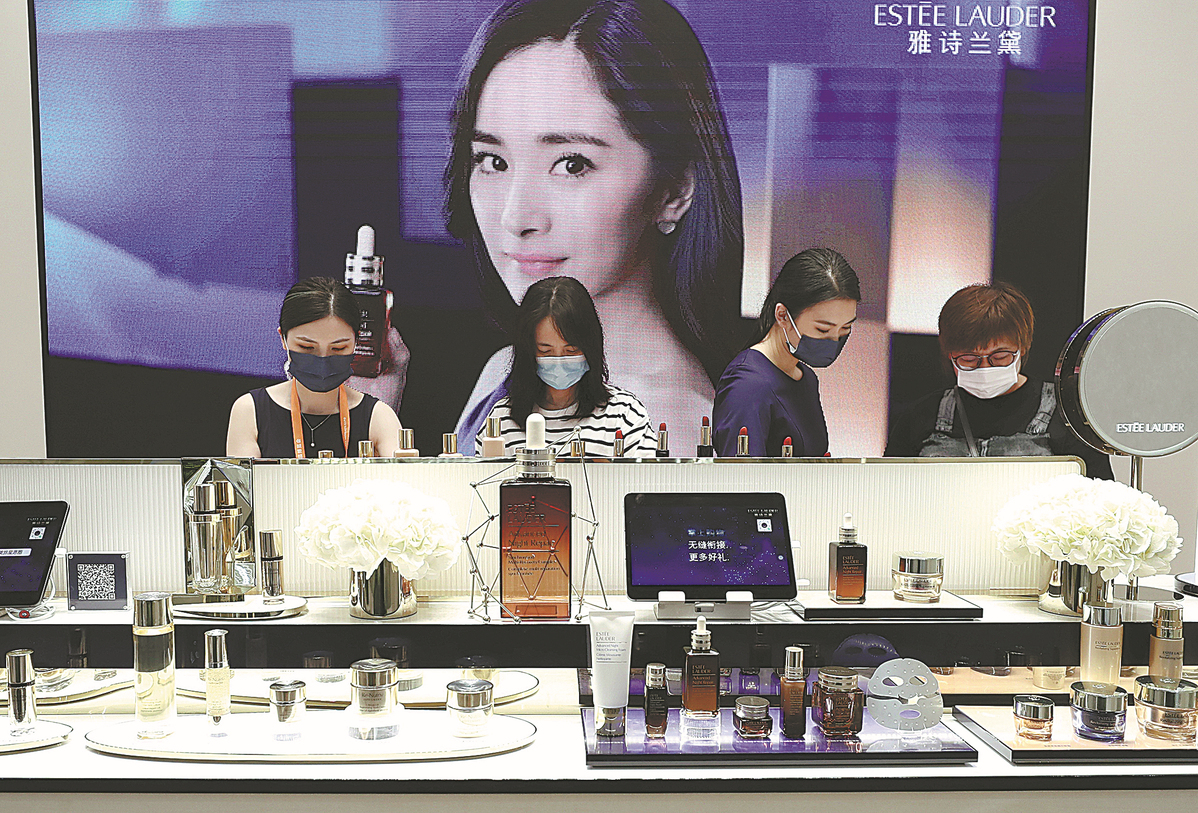
Global business leaders said they remain bullish on the China market's long-term prospects and will continue to exploit growth opportunities presented by the Hainan Free Trade Port, which will help develop the region as well as the rest of the world.
They made the remarks at the ongoing China International Consumer Products Expo in Haikou, Hainan province.
Matthew Margulies, vice-president of China operations for the US-China Business Council, said the sheer scale of China's consumer market continues to matter. China offers $5 trillion worth of consumption growth opportunities over the next decade-something that US companies are eager to unlock.
Many US companies have already used digital platforms to tap into large consumer bases in China as the country transitioned to a consumption-led economy from an export-driven market.
As two great economies and economic partners, the United States and China will continue to harness the economy's strength for better outcomes for consumers across the world, Margulies said at the expo.
US skincare group Estee Lauder said it has established a world-class research and development center in Shanghai, and the facility is expected to be put into use this year. The center will develop more products that cater to young Chinese consumers and the overseas markets.
"We will continuously introduce new brands to enrich our brand portfolio, and expand online and offline sales in China. Young Chinese are quite sophisticated and open-minded, and we will strengthen the efforts to explore more personalized products to meet their demand," said Joy Fan, president of Estee Lauder in China.
L'Oreal, the world's largest cosmetics company by revenue and a two-time participant of the expo, said the event is a powerful avenue for it to showcase its brand portfolio. The company came to Hainan to collaborate with stakeholders and local partners to share opportunities, inject dynamism into the island, and continuously invest in China, including making potential investments in Chinese cosmetics startups.
The French company said the beauty industry in China has shown its resilience in the past two years, despite the COVID-19 pandemic, and L'Oreal reported strong double-digit growth in the Chinese mainland in 2021. Next, it hopes to bring more innovative new products to the China market.
"We see a lot of opportunities in China. Middle-income consumers are constantly growing, and the consumer group could be one of the largest globally in the next few years. High-quality consumption is also growing in China, and this is positive for the beauty industry," said Fabrice Megarbane, president of L'Oreal North Asia and CEO of L'Oreal China.
Chinese people are increasingly paying attention to cultural aspects, experience upgrades and personal expressions, according to a new report released by Boston Consulting Group during the expo.
"Personalized and socialized aesthetic expressions of Chinese consumers have reached a new high. We suggest that brands should invest in new technologies continuously to capture future business opportunities, especially in new technologies related to cosmetics, food and cars," said Yang Li, a global partner with BCG.
The domestic retail market plays a highly important role in China's economic development, said another report released at the expo by KPMG and the Moodie Davitt Report, which is published by Moodie International Ltd, a multimedia business-to-business publisher.
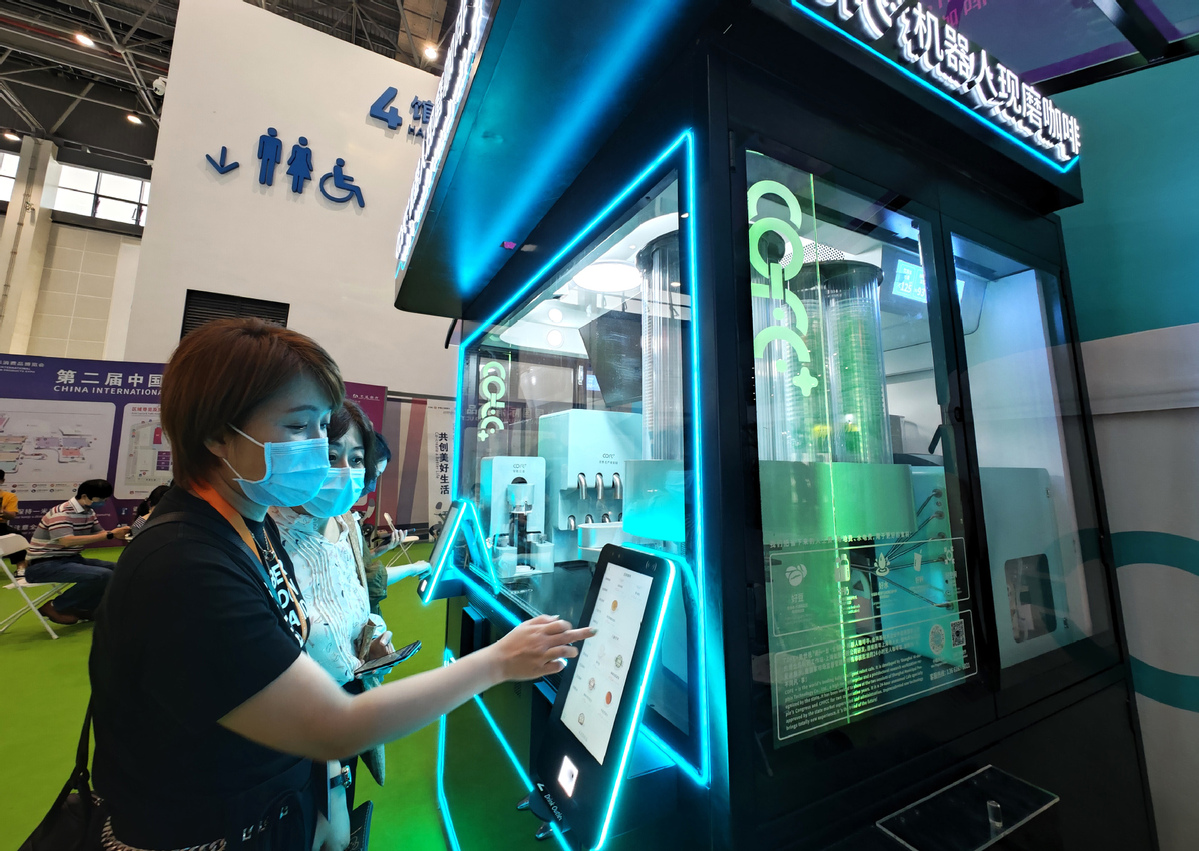
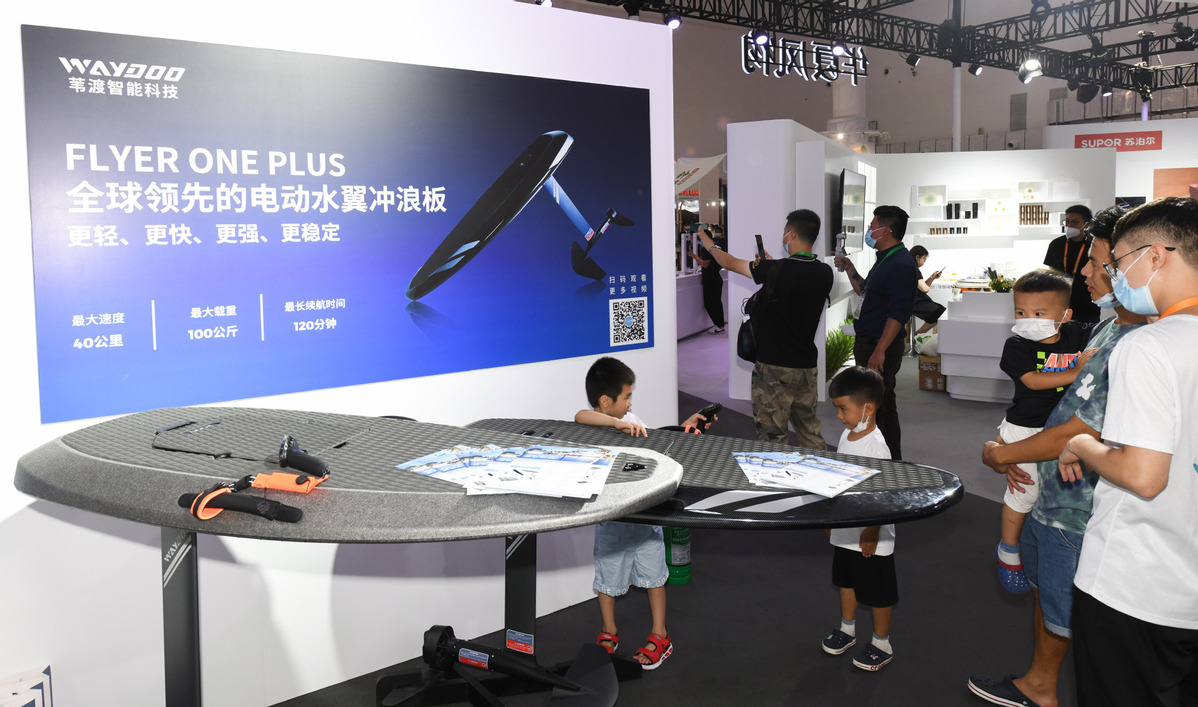
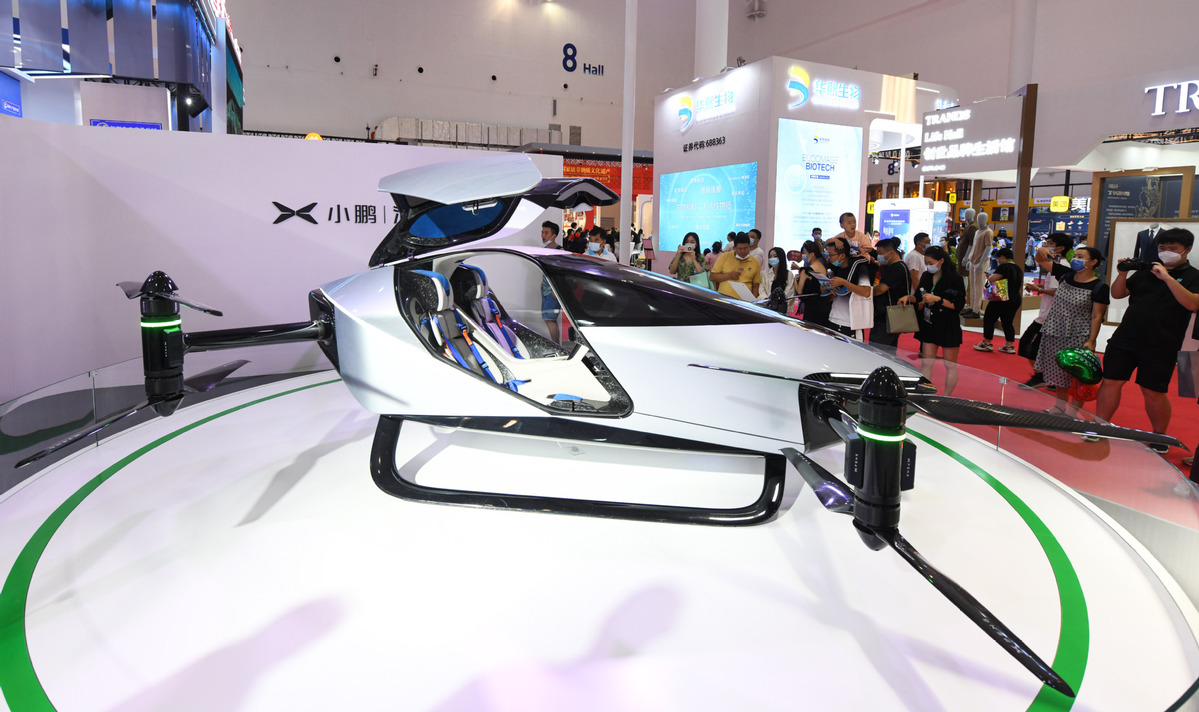
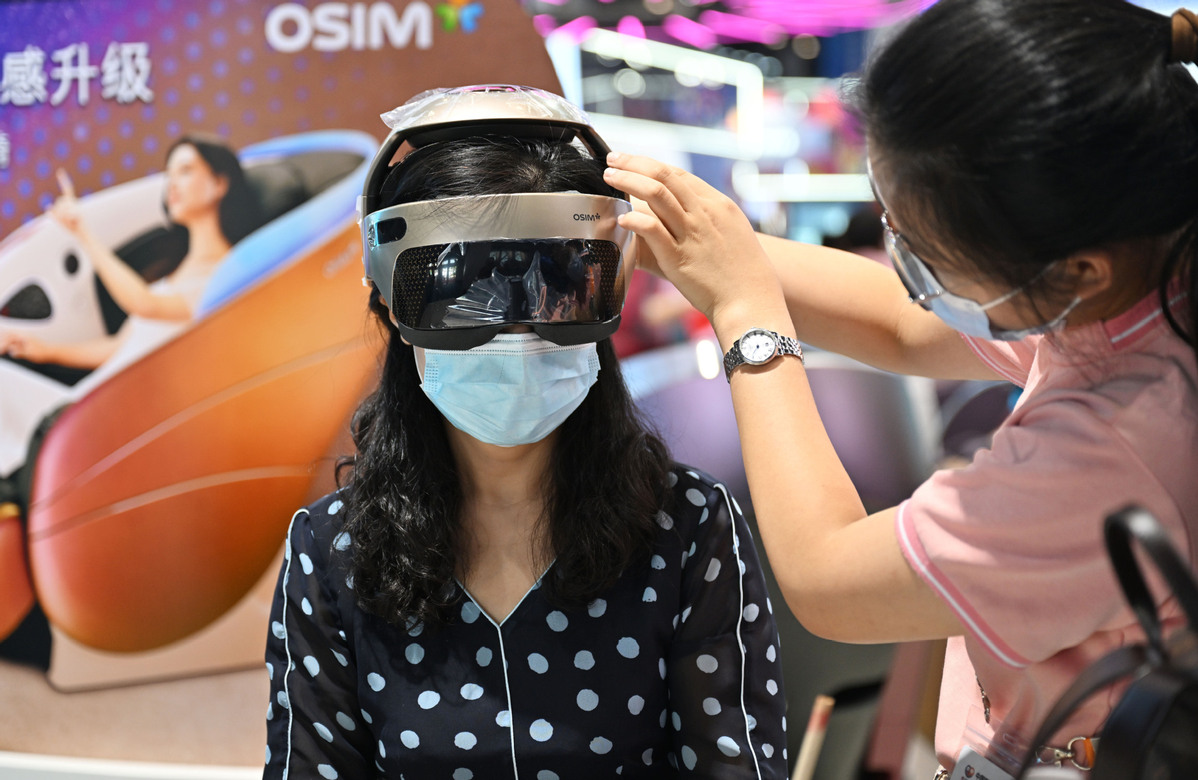
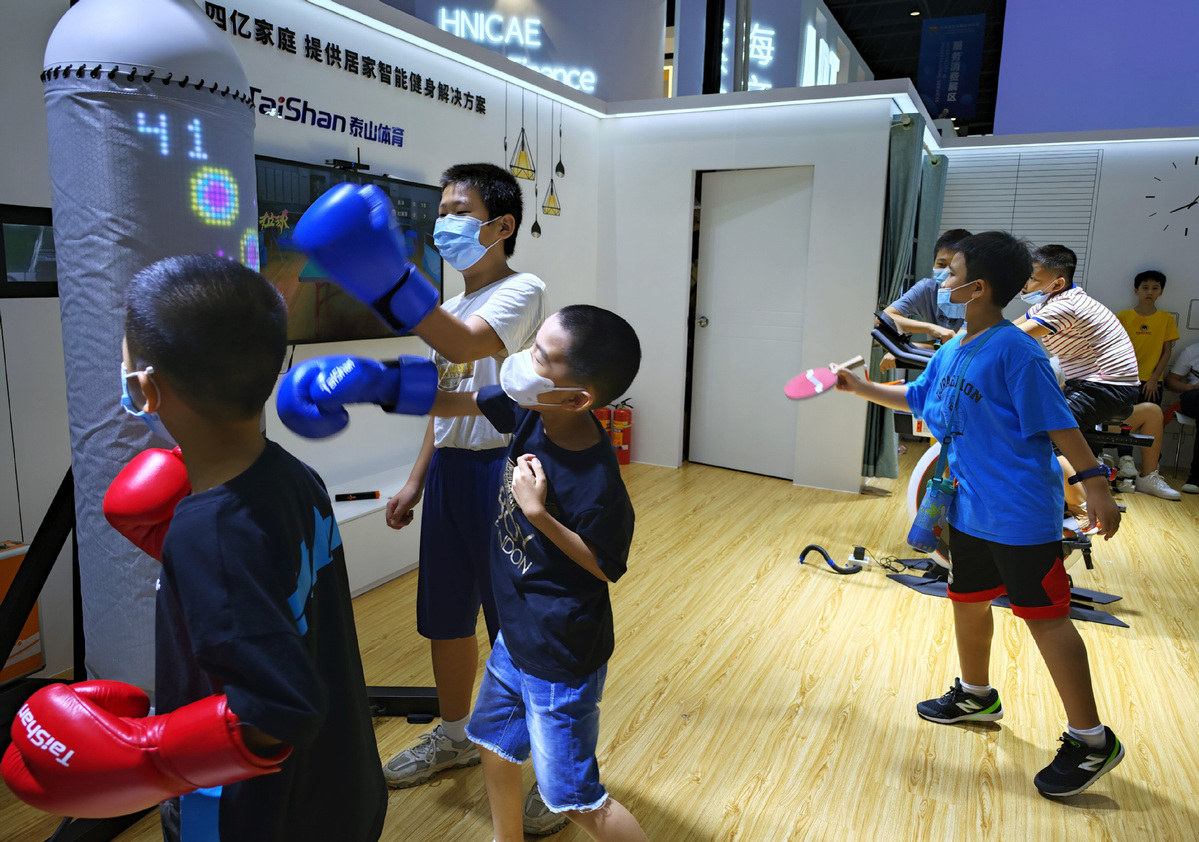
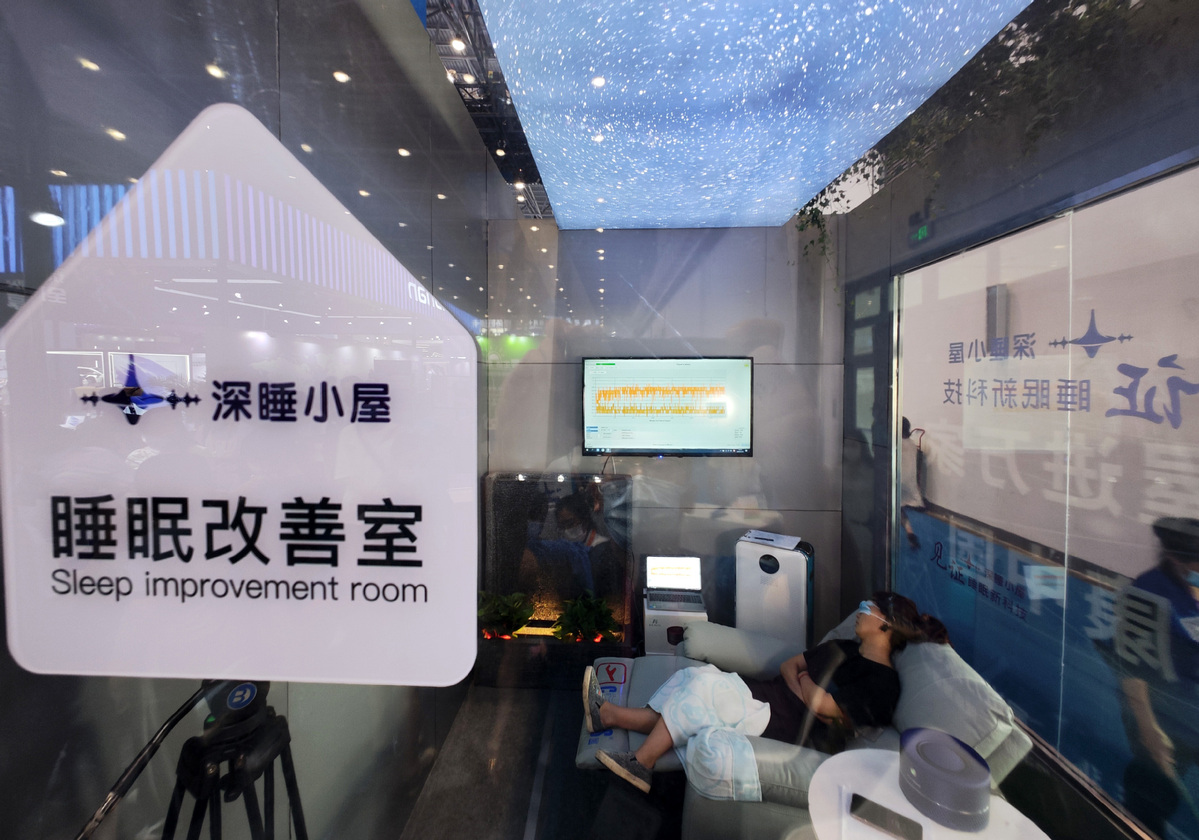
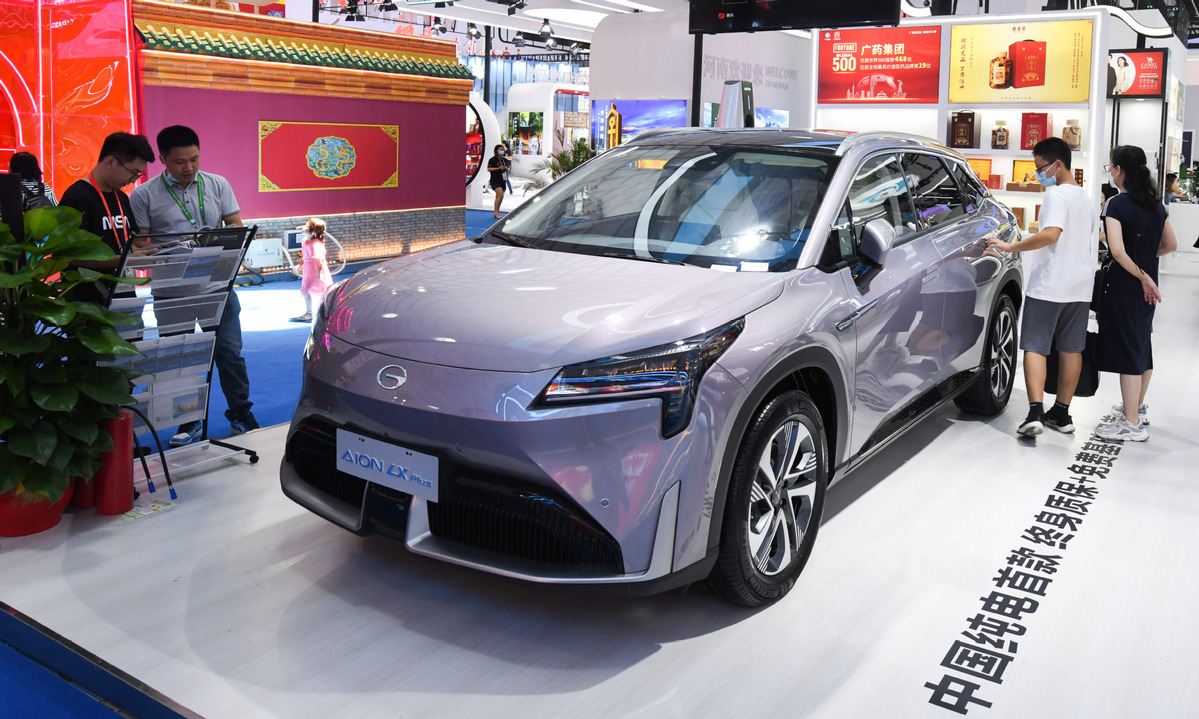
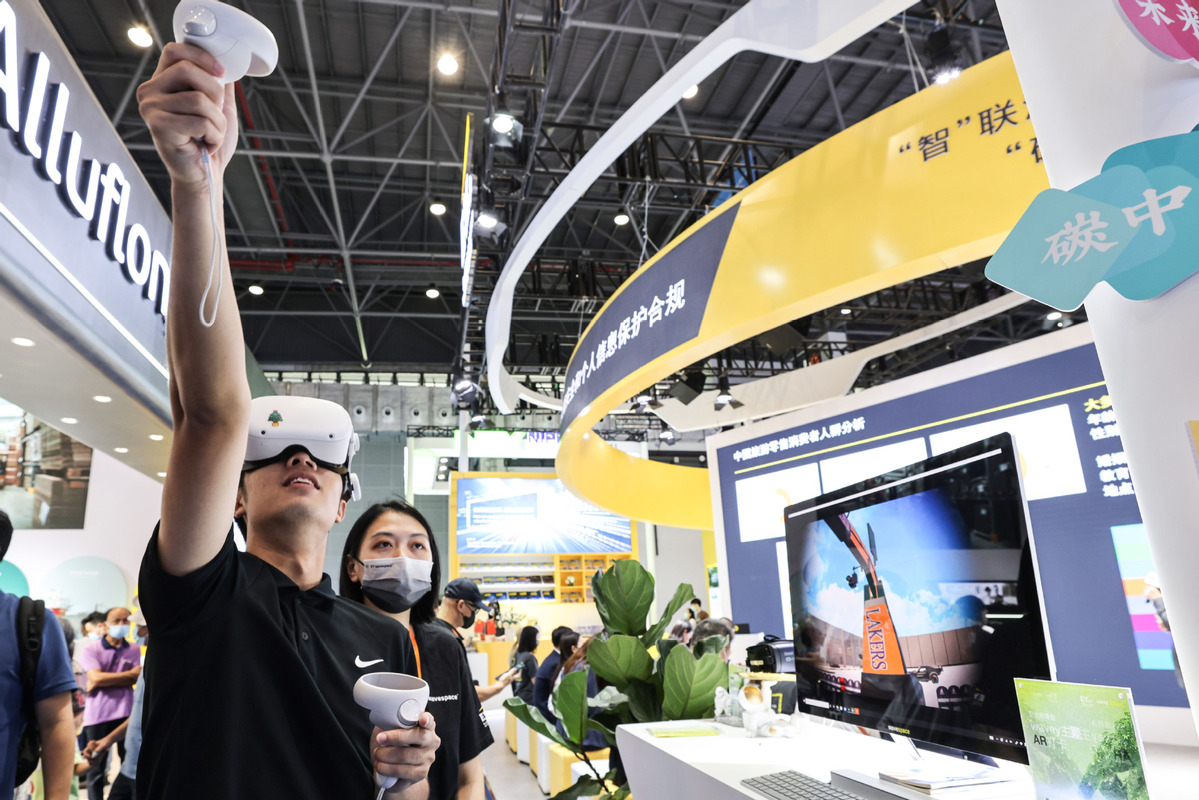
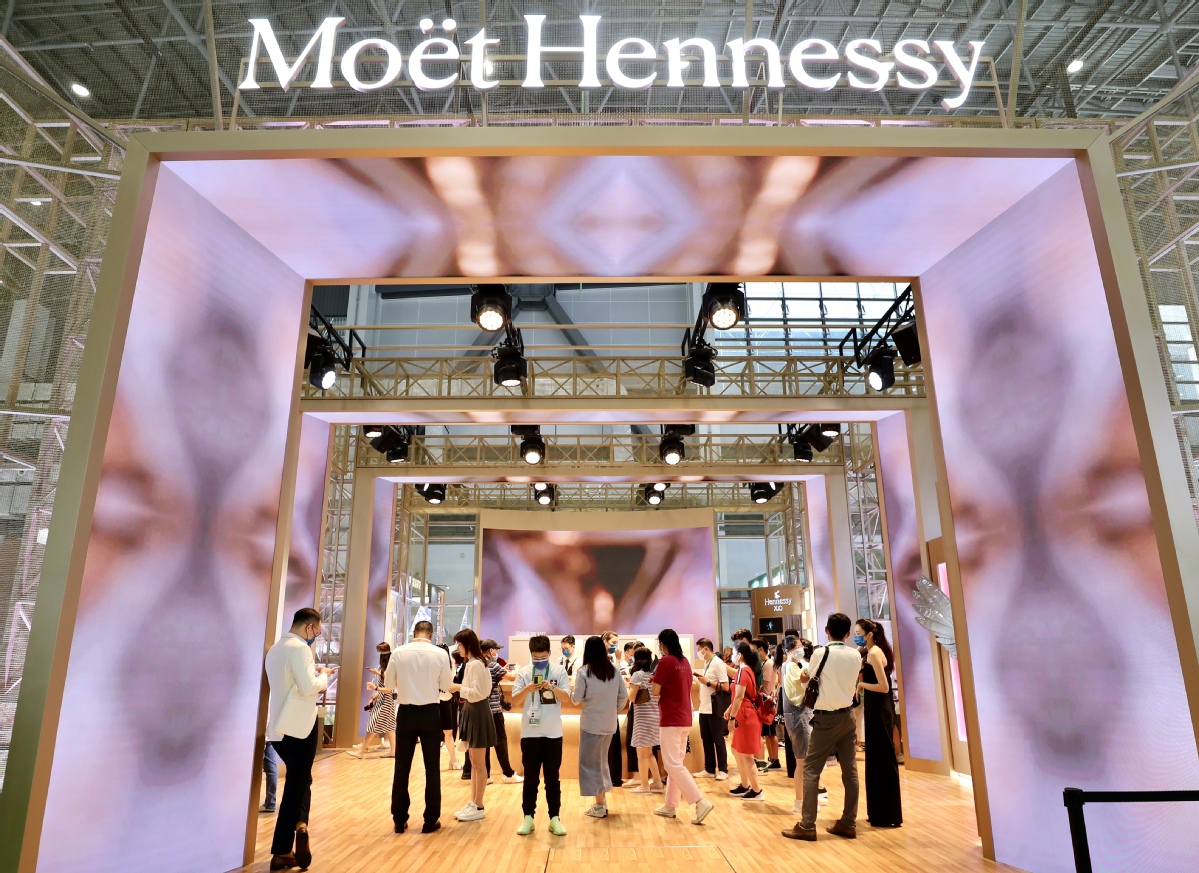
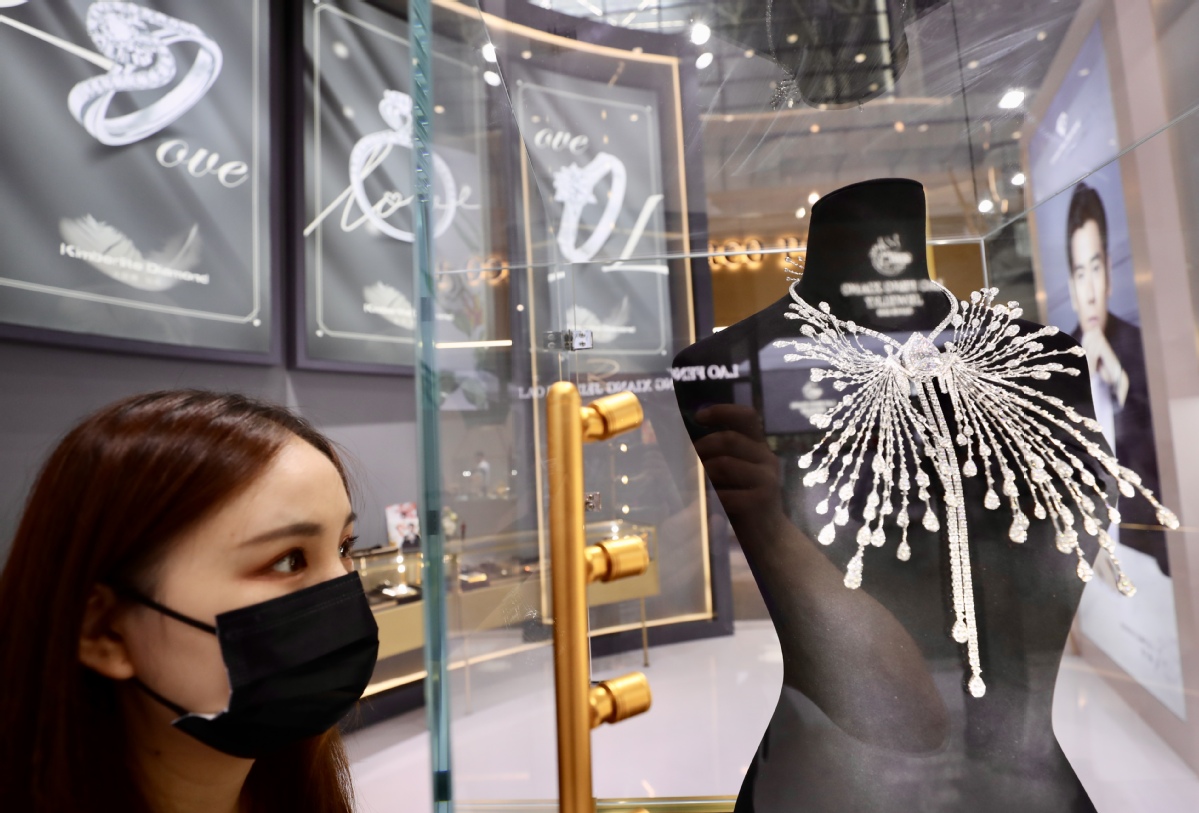
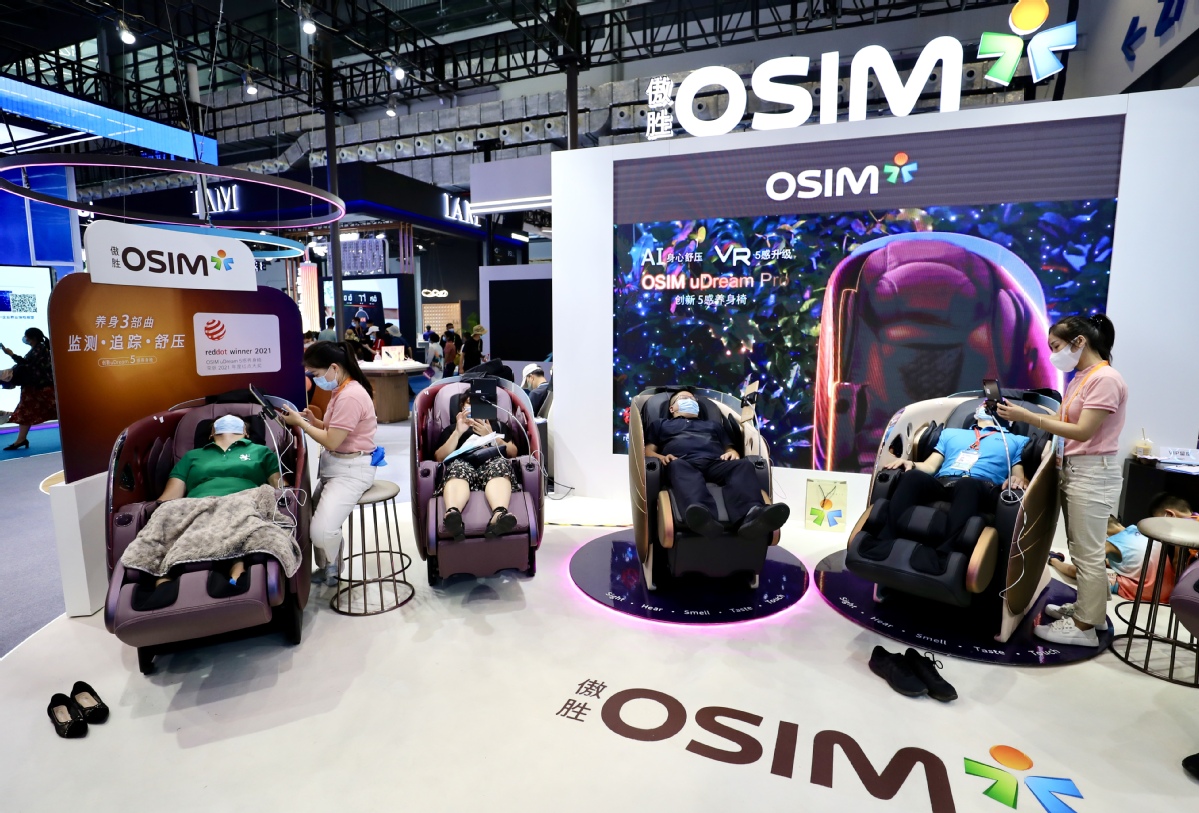
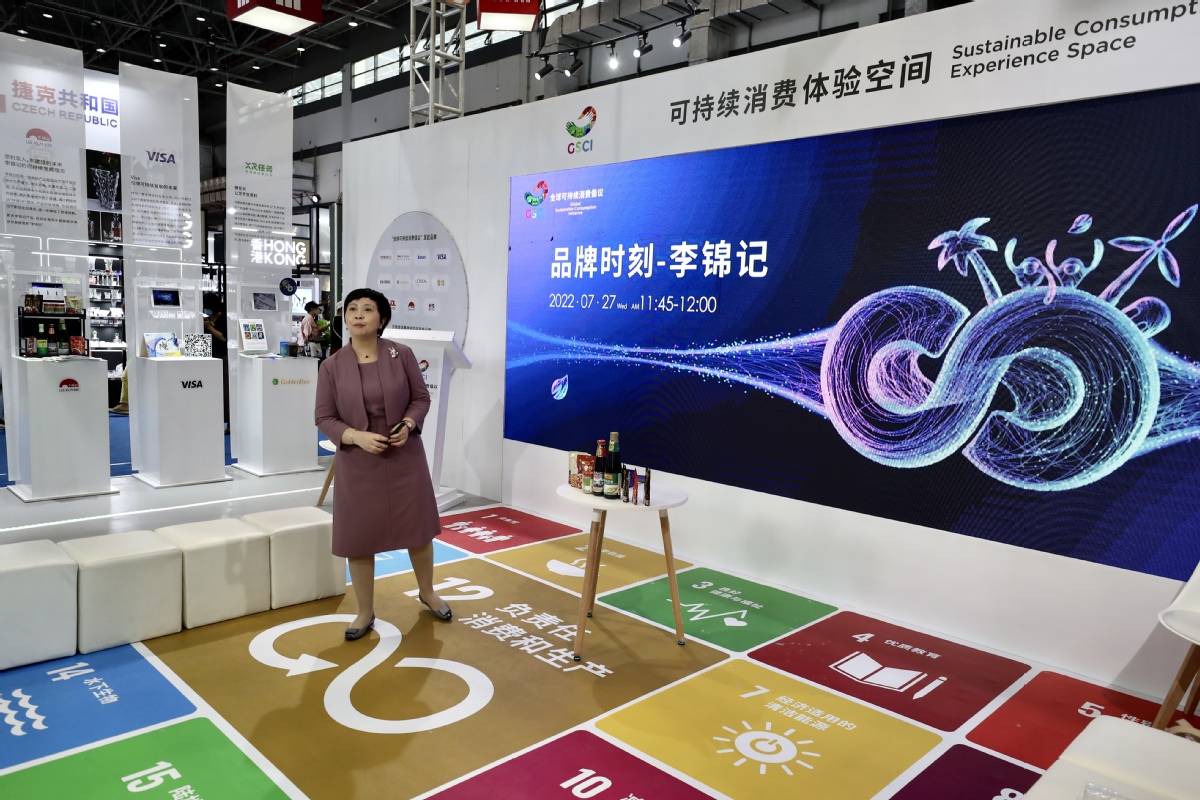
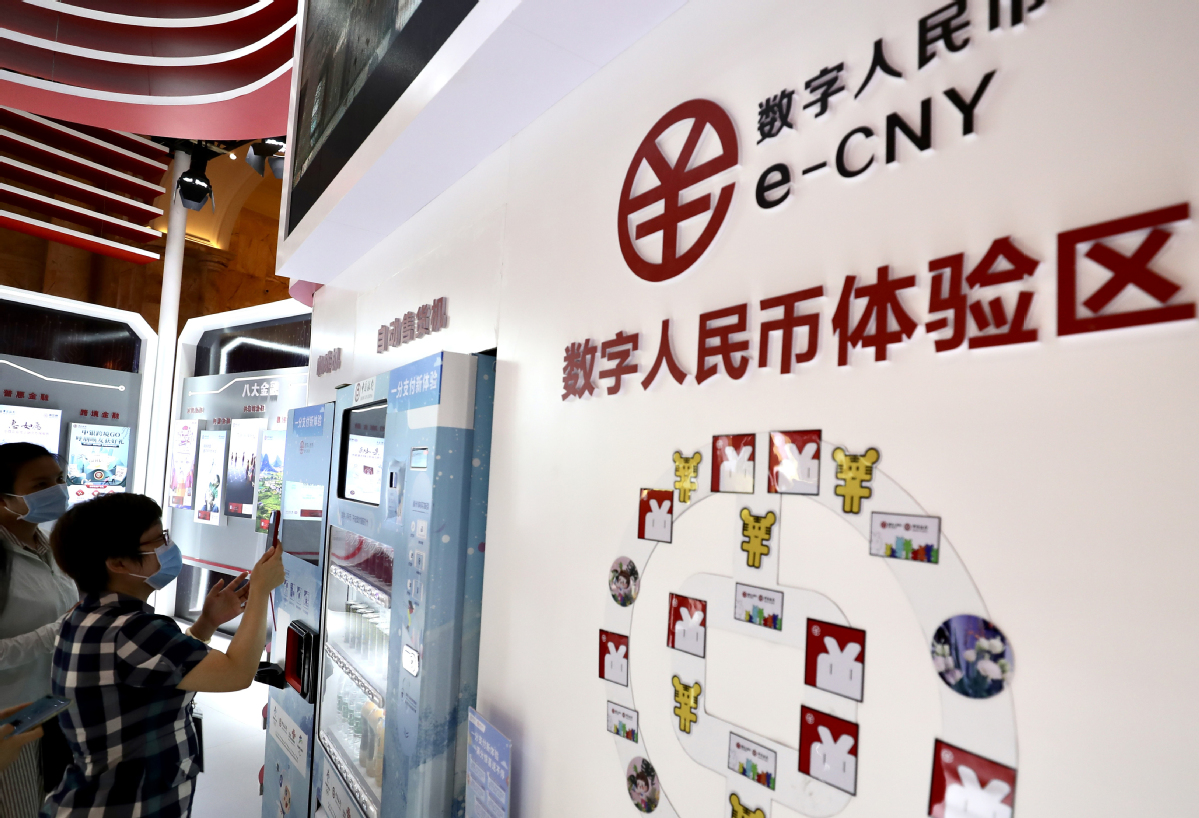
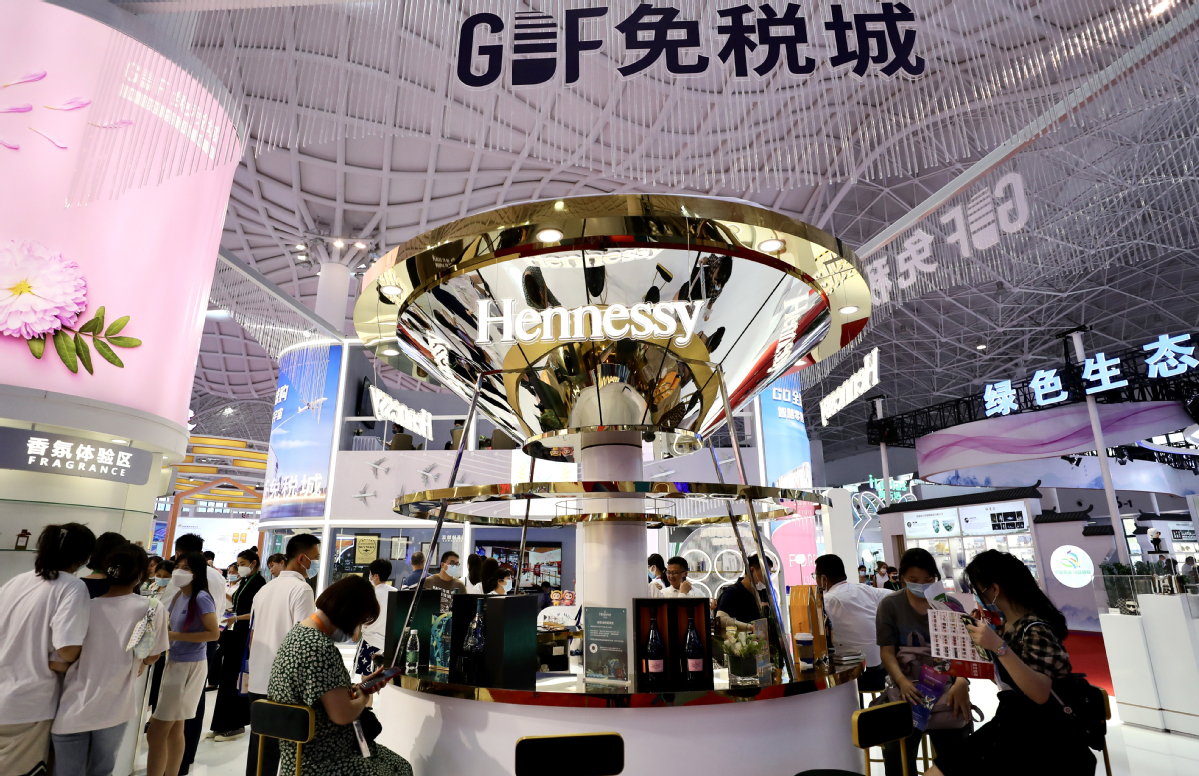
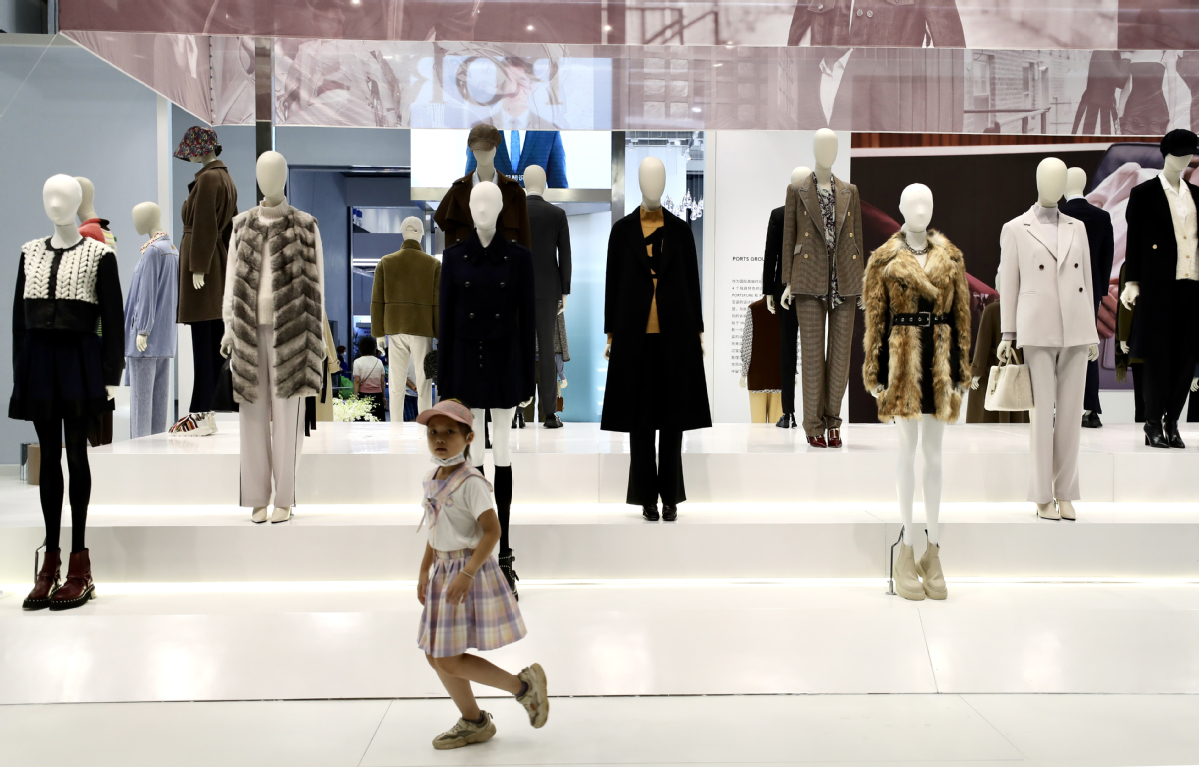
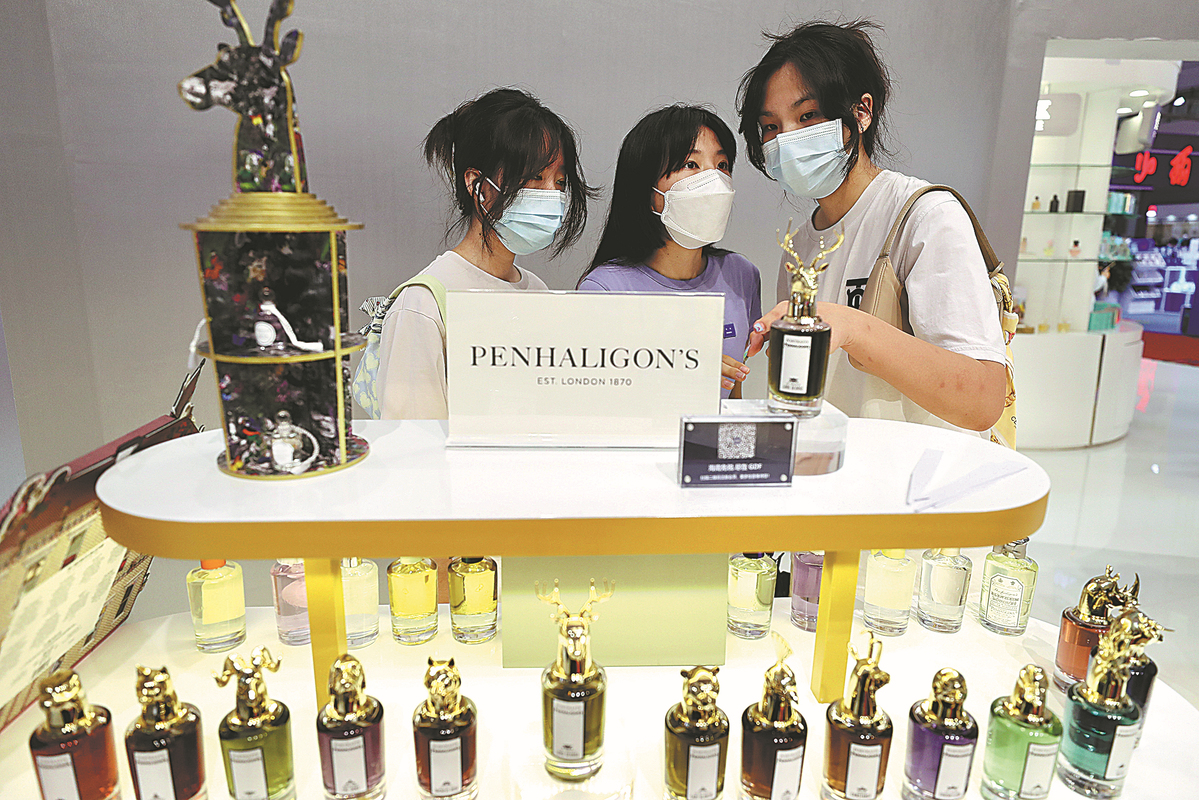
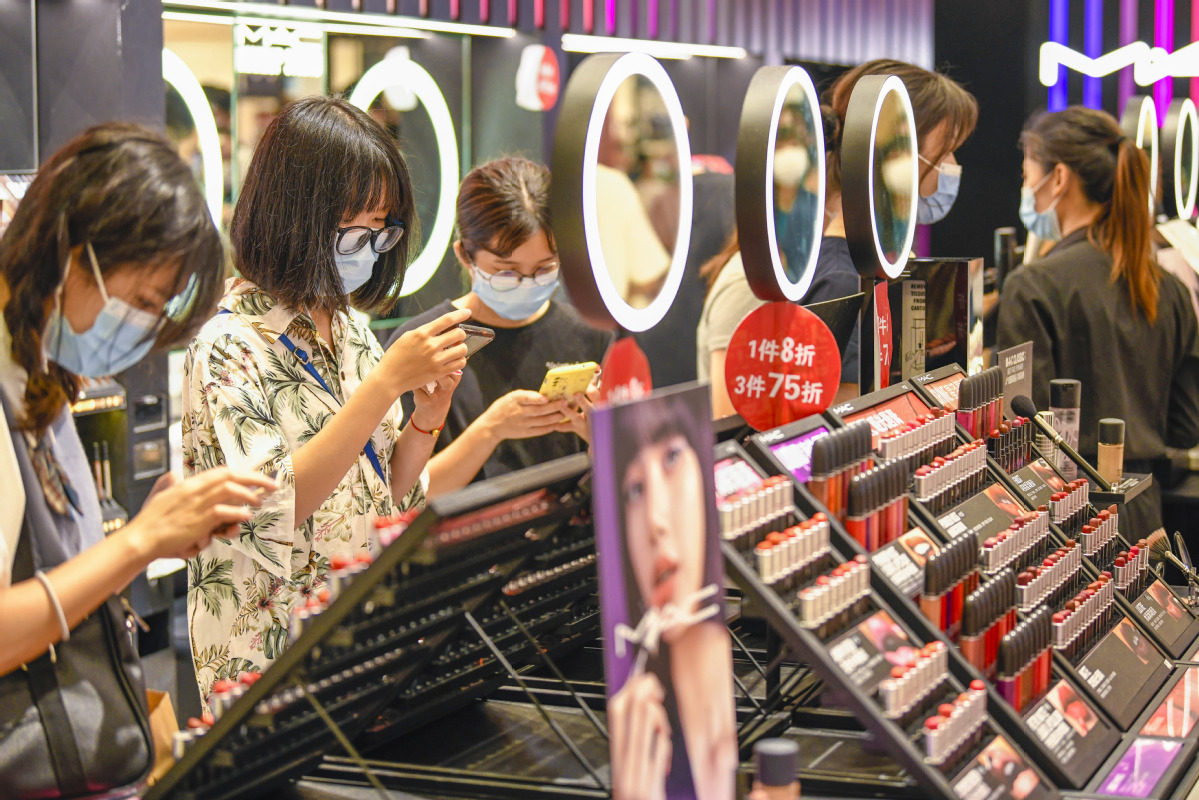
People in China are seeking more exquisite high-end consumer goods with their spending on both imports and foreign brands continuing to be a key driver for consumption upgrade, according to a new report from e-commerce giant JD's Consumption and Industry Development Research Institute.
The country's consumer goods market is gaining growth momentum fueled by better containment of the COVID-19 pandemic and a series of stimulus measures to spur consumption, industry experts said, adding that the recovery of spending sentiment will inject strong impetus into the global economy.
The report, which was released during the ongoing second China International Consumer Products Expo, said young people aged between 26 and 35 are the major demographic eyeing imports and foreign brands, accounting for nearly half among all age groups.
In addition, consumers between 46 and 55 have evinced increasing enthusiasm for overseas brands, as their spending on imports increased 283 percent in 2021 compared with that in pre-COVID 2019.
Mobile phones, computers, maternal and infant commodities, beauty and skincare products, and home appliances are the most favored categories by Chinese consumers among all imported products, the report noted. For instance, sales of foreign-branded mobile phones accounted for more than 30 percent of all imported goods in the first half.
Moreover, the top five countries for imported products are the United States, Japan, France, Germany and Switzerland. Many consumers are now purchasing more products from JD's online marketplaces due to contagion-related international travel restrictions.
Generation Z consumers, those born between the mid-1990s and the early 2010s, are more willing to buy watches, eyeglasses, jewelry and digital products from international brands, whereas senior shoppers favor food, beverages, clothing and adult beverages, according to the report.
In the first half, consumers from first and second-tier cities accounted for 55 percent of the sales of imported consumer goods. Meanwhile, rising interest in foreign brands has also been seen in rural areas. According to JD sales data, the transaction volume of global-branded products generated from rural areas grew 174 percent in 2021 compared with that in 2019.
The report also showed that consumers from Guangdong province, Beijing, Jiangsu province, Shanghai and Zhejiang province purchased the most foreign brands, with 20 percent of such purchases coming from Guangdong alone.
China's cross-border e-commerce sector has been growing exponentially over the past few years as the country's middle and high-income shoppers are demanding increasingly diversified and personalized products and services. The Ministry of Commerce said total imports of consumer goods reached 1.73 trillion yuan ($255.7 billion) in 2021, up 9.9 percent year-on-year.
"In the long run, the strong resilience and immense potential of consumption will remain unchanged, and consumption will play a bigger role in driving economic growth," said Wang Yun, a researcher with the Academy of Macroeconomic Research, adding that Chinese shoppers are pursuing high-quality and diversified products, given their steady income growth.
"With expanding domestic demand and advances in emerging retail technologies, China has introduced preferential policies, such as lowering import taxes and expanding the range of goods allowed to be imported. This has prompted a surge in cross-border e-commerce imports despite the COVID-19 pandemic, underlining a period of rapid growth for China's imported goods market," said Zhang Tianbing, head of Deloitte Asia-Pacific's consumer products and retail industry.
Zhang said overseas brands are moving to cross-border e-commerce platforms as they expand their distribution channels in light of COVID disruptions to offline retail.
The number of imported stock keeping units or SKUs surged 51 percent on a yearly basis in the first six months, and the transaction volume of more than 400 brands through JD Worldwide-the company's cross-border e-commerce platform-skyrocketed by more than 100 percent during this year's June 18 online shopping festival, JD said.
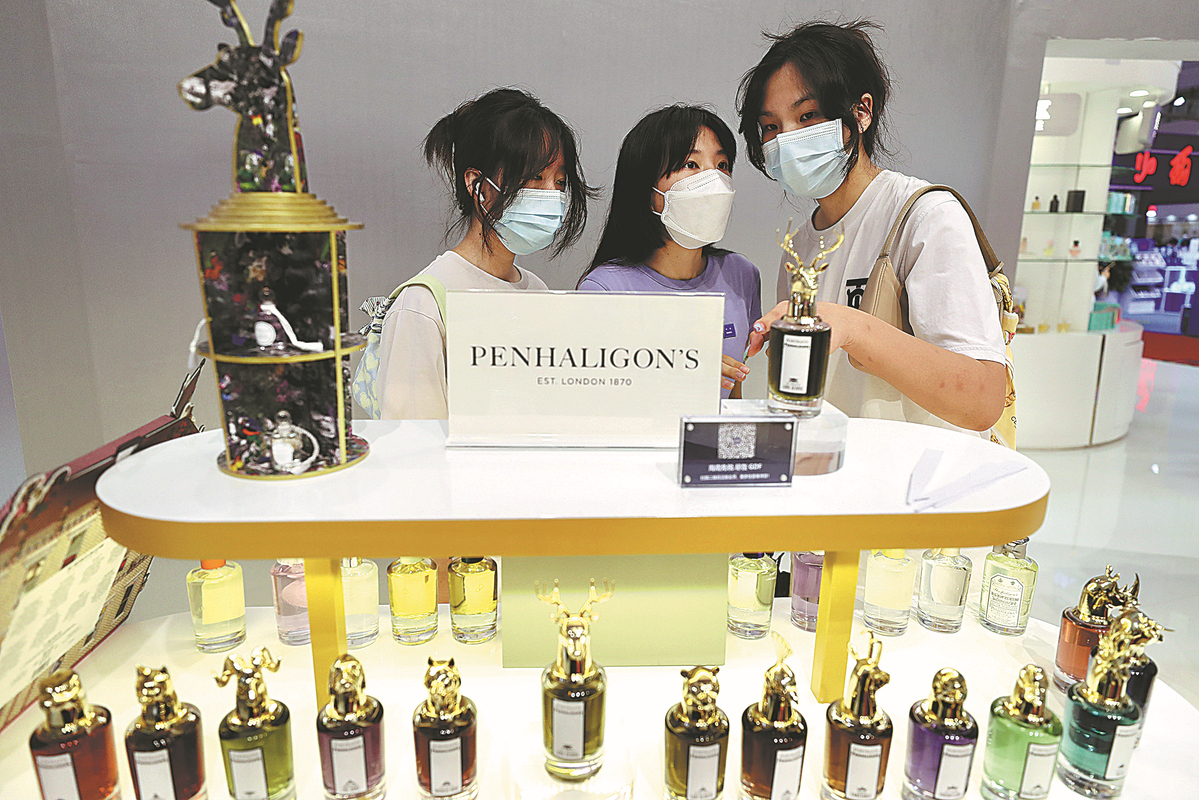
Product expo, FTP big factors in boosting trade and growth
Buoyed by the free trade port under construction and business-friendly events, Hainan has emerged as a bright spot on the global consumption map, creating a sizable market for luxury goods-and top brands are keen to exploit the opportunity to further tap into the China market, business leaders said.
Their remarks, made at the ongoing China International Consumer Products Expo in Haikou, Hainan province, were buttressed by data.
Last year, sales of personal luxury products in Hainan accounted for 13 percent of the total revenue of 470 billion yuan ($69.4 billion) nationwide. And 21 percent of global luxury sales revenue came from China.
With the emergence of more commercial circles like the Haitang Bay in Sanya, the Hainan FTP is bound to continue to play a crucial role in China's luxury goods market, according to a new report released by consultancy Bain& Company at the expo.
British luxury brand Burberry, a two-time participant of the expo, said the event provides excellent opportunities for global retailers to gather together, and the spillover effect of the expo has been prominent.
It will seize the business opportunities in Hainan, a top vacation resort and a shopping paradise, where it has attracted a large number of consumers and the company is bullish on the prospects of offshore duty-free shopping in the province.
"In the past two years, the speed of recovery in China from the COVID-19 pandemic has been impressive, and we look forward to the further recovery of the market," said Josie Zhang, president of Burberry China.
"The China market has changed significantly and Generation Z consumers have become backbone buyers. We have also started our strategy to tap young people born after 2010," she said.
Since the second half of June, sales at offshore duty-free shops in Hainan have resumed the trend of year-on-year growth, which was affected by the pandemic, according to China Tourism Group.
Sheng Qiuping, vice-minister of commerce, noted that China would continue to develop new types of consumption, promote the continued recovery of consumption, give full play to the role of consumption in driving growth and stabilizing the economy.
"More global brands are participating in the expo this year, showing that the role of the expo has become more prominent and the attractiveness of the China market has grown further," Sheng said at the expo.
In the first quarter, China's luxury market remained strong growth, but the business performance of the sector in the second quarter was affected by the resurgence of local COVID-19 cases. Nevertheless, Bain& Company said it believes the personal luxury market in China will gradually recover in the third quarter, and return to the level of 2021 by the end of this year or early next year.
"We are confident that China's luxury market will continue to grow, fueled by an increasing consumer base and further digitalized environment, and Hainan FTP will serve as a key enabler to drive consumption," said Xing Weiwei, partner of Bain & Company.
French luxury goods company LVMH Group said local COVID-19 cases that emerged in the past few months had a certain impact on the domestic retail and travel market. Therefore, it is of great significance that the expo has been organized in this context.
LVMH said it is confident of China's growth potential, and predicted Hainan will become a premium tourism market that high-end brands cannot ignore.
Zhang Tianbing, leader of consumer products and retail at Deloitte Asia-Pacific, said this year is important for the Hainan FTP, and the expo would help build Hainan as a shining example of high-level opening-up. Hainan will continue to help drive the overall consumption growth of China, he said.
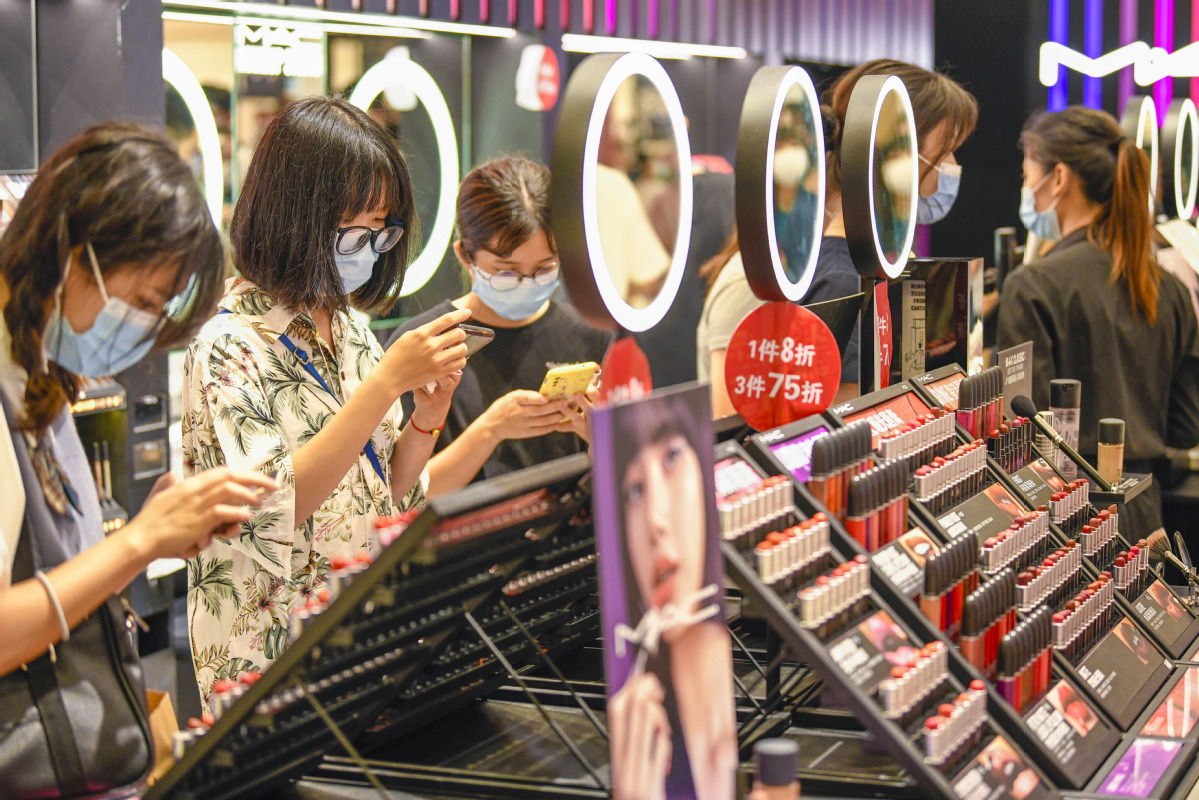
HAIKOU -- Offshore duty-free shopping in South China's island province of Hainan has expanded domestic demand and helped spur new consumption growth in China.
"Hainan has been a lighthouse for the global duty-free and travel retail industry during a very dark and difficult period. The growth of the offshore duty-free market in Hainan has been phenomenal, but there is still potential for more," noted Erik Juul-Mortensen, president of the Tax Free World Association via video link at the ongoing second China International Consumer Products Expo (CICPE) held in the province.
"The difficult times we have experienced do not change the fact that China is and will remain the motor of the regional and global duty-free and travel retail industry," he added.
Over the past decade, China's consumer market has grown rapidly into the second largest in the world. In 2021, China's total retail sales of consumer goods exceeded 44 trillion yuan ($6.5 trillion), an increase of 1.1 times compared with 2012, with an average annual growth rate of 8.8 percent.
"China is one of the largest and most promising consumer markets in the world," said Wang Haimin, general manager of China Tourism Group. Wang added that China's consumption growth is forecast to contribute to over a quarter of global consumption growth in the next decade, ranking first in the world.
According to Wang, in the past two years, the global tourism retail market has been shrinking due to the pandemic, but China's tourism retail market still registered a 38 percent year-on-year growth last year. The personal luxury goods market, particularly, exceeded 470 billion yuan in China last year, more than twice that before the epidemic.
"Hainan is one of the most dynamic open markets in China," said Wang.
As one of the country's major opening-up measures in the new era, China aims to build the whole of Hainan Island into a globally influential and high-level free trade port (FTP) by the middle of the century.
Now duty-free shopping has become one of the core competitive features of Hainan's tourism consumption.
The province's duty-free shops raked in over 60 billion yuan in 2021, an increase of 84 percent year-on-year. About 9.7 million people made duty-free purchases in 2021 in the province, up 73 percent year-on-year.
Hainan FTP has also become a new luxury goods market in China, with its sales in 2021 accounting for 13 percent of the total sales of luxury goods market in the country.
Global management consulting firm Bain & Company predicts that with the continuous growth of the number of luxury consumers in China and the sustained construction of the Hainan FTP, China's personal luxury consumption market will maintain a rapid recovery pace, and is expected to recover to the 2021 level by late 2022 or early 2023.
During the CICPE, a white paper on Hainan travel retail market in 2022 was jointly released by KPMG China and Moodie Davitt Report. The white paper said with the landing of more supportive policies in duty-free shopping, the scale of tourism retail market in Hainan FTP is expected to further swell, injecting strong confidence into investors to expand their footprints in Hainan.
It predicts that Hainan will grow into the world's largest tourism retail market in the next five years.
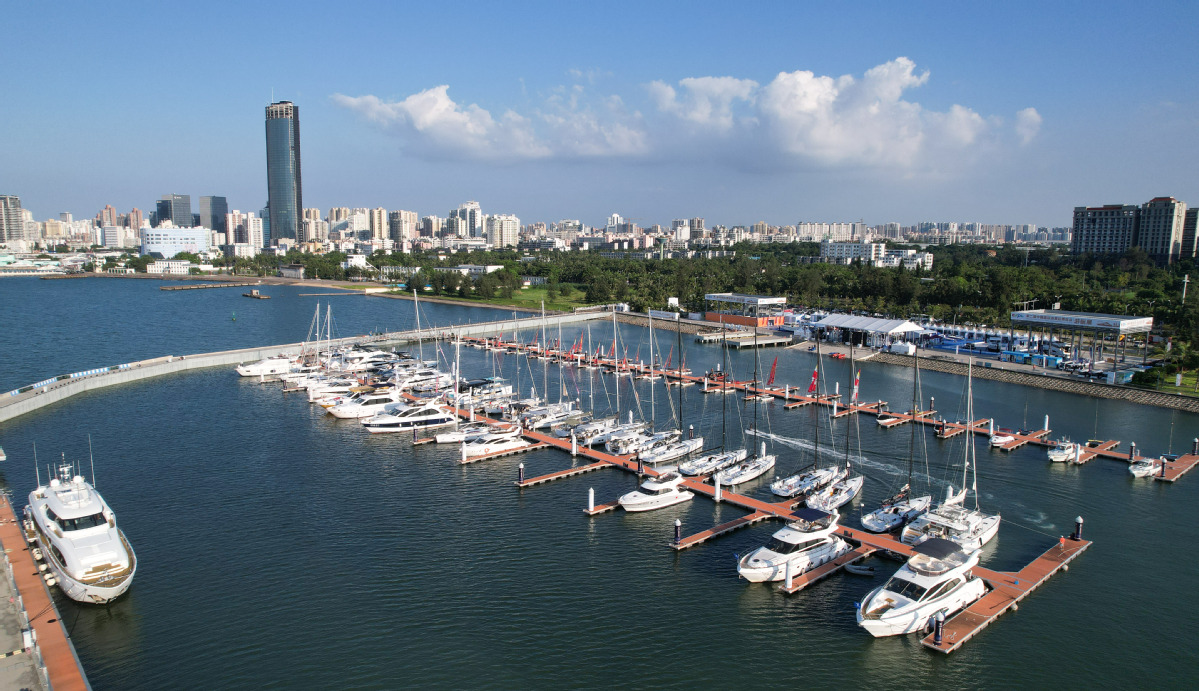
Yachts are the shining stars at the second China International Consumer Products Expo in Haikou, South China's Hainan province.
Over 200 yachts are on display at the exhibition to meet consumers' demands on high-quality ocean travel experiences.
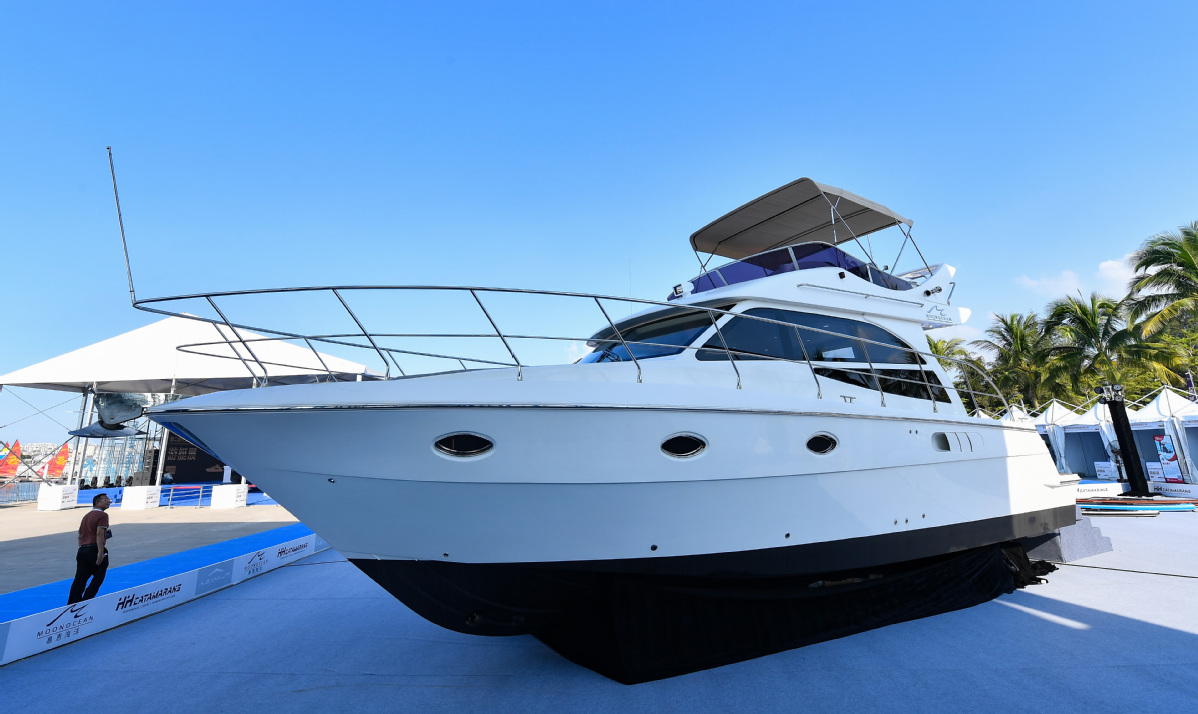
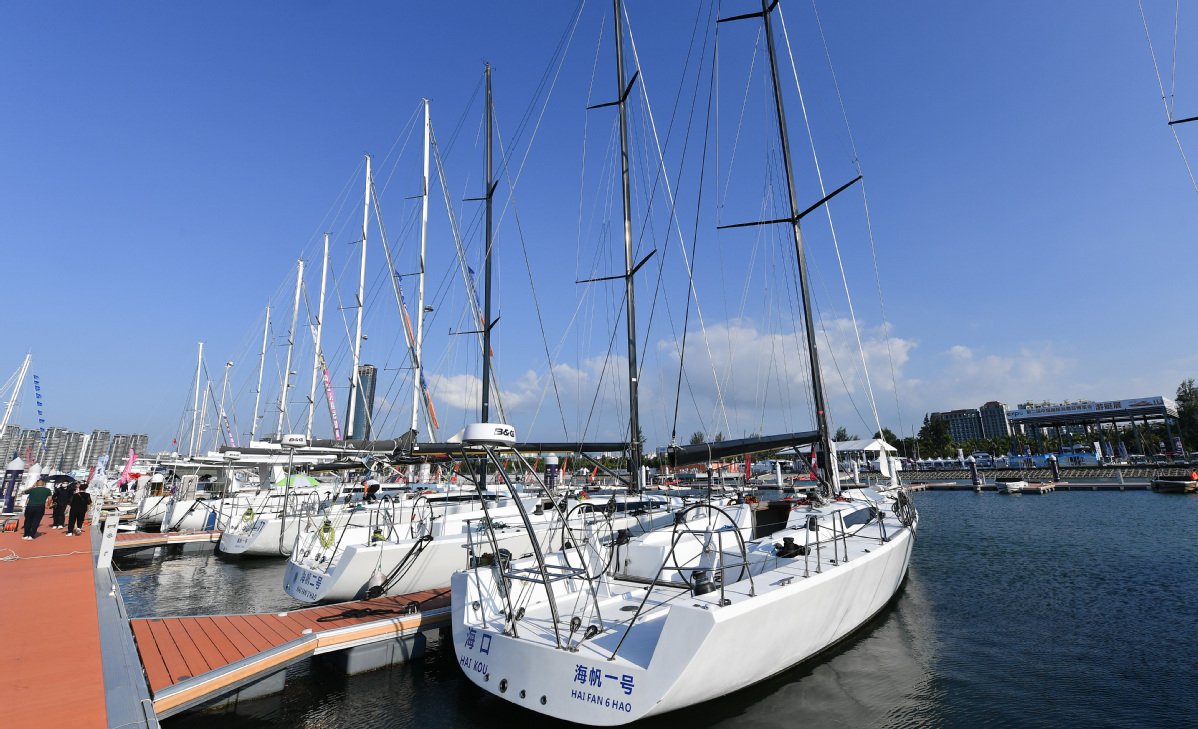
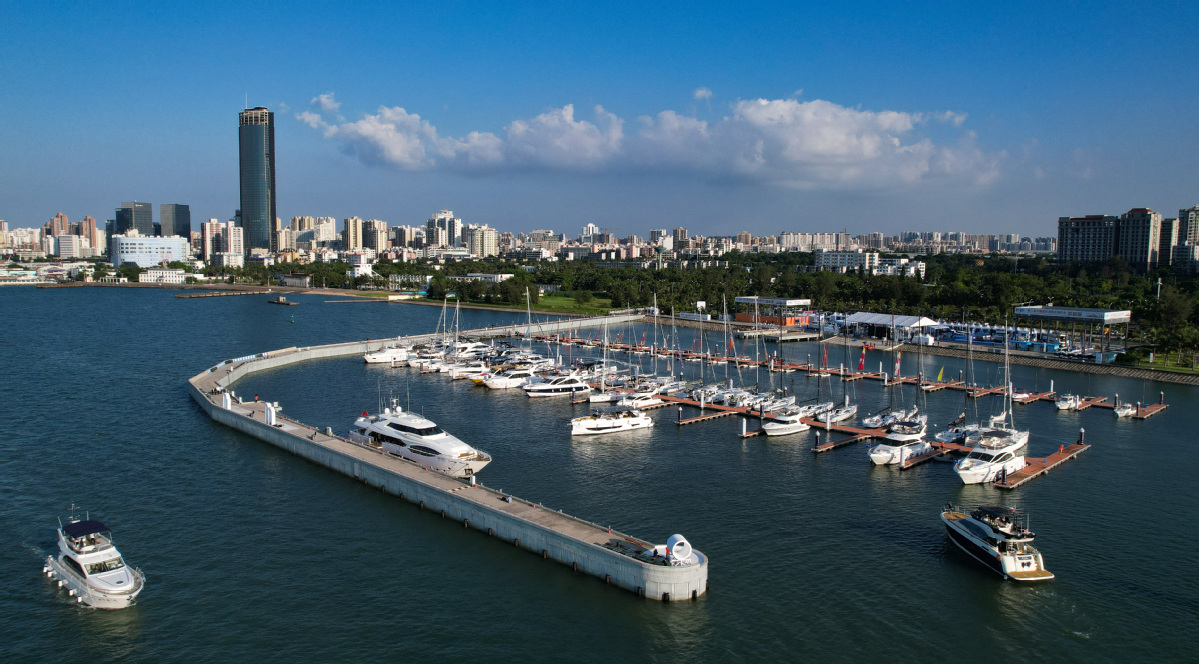
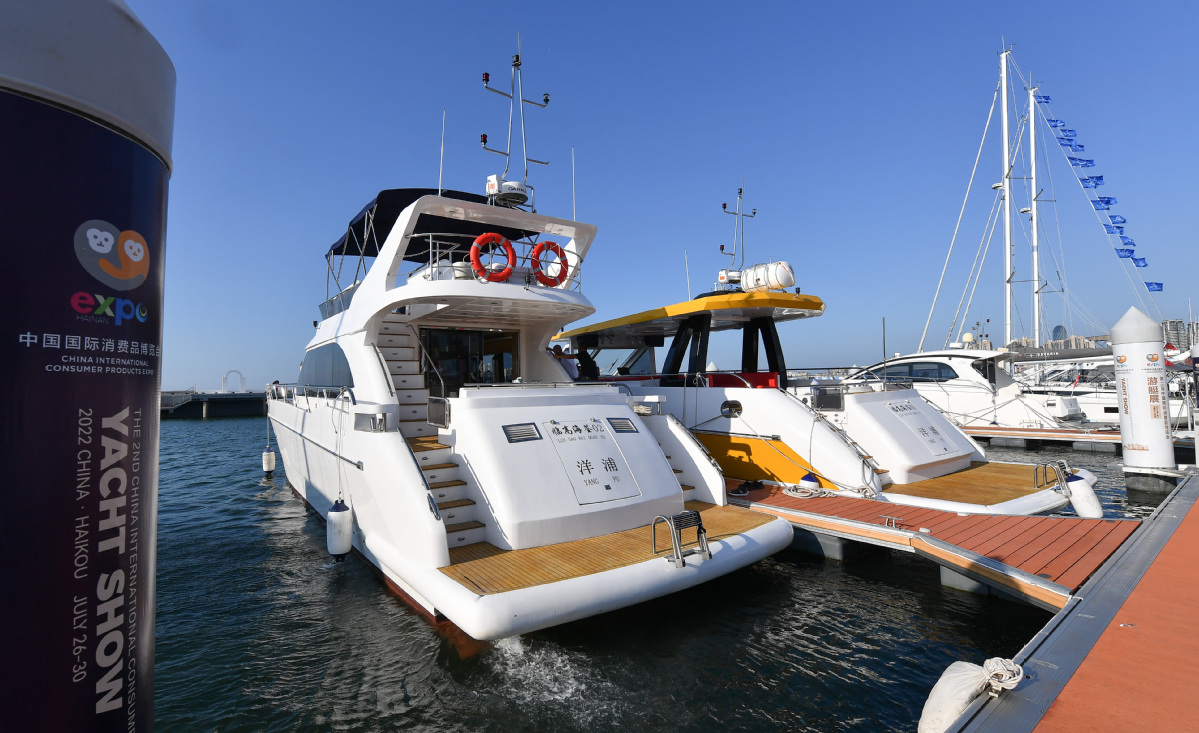

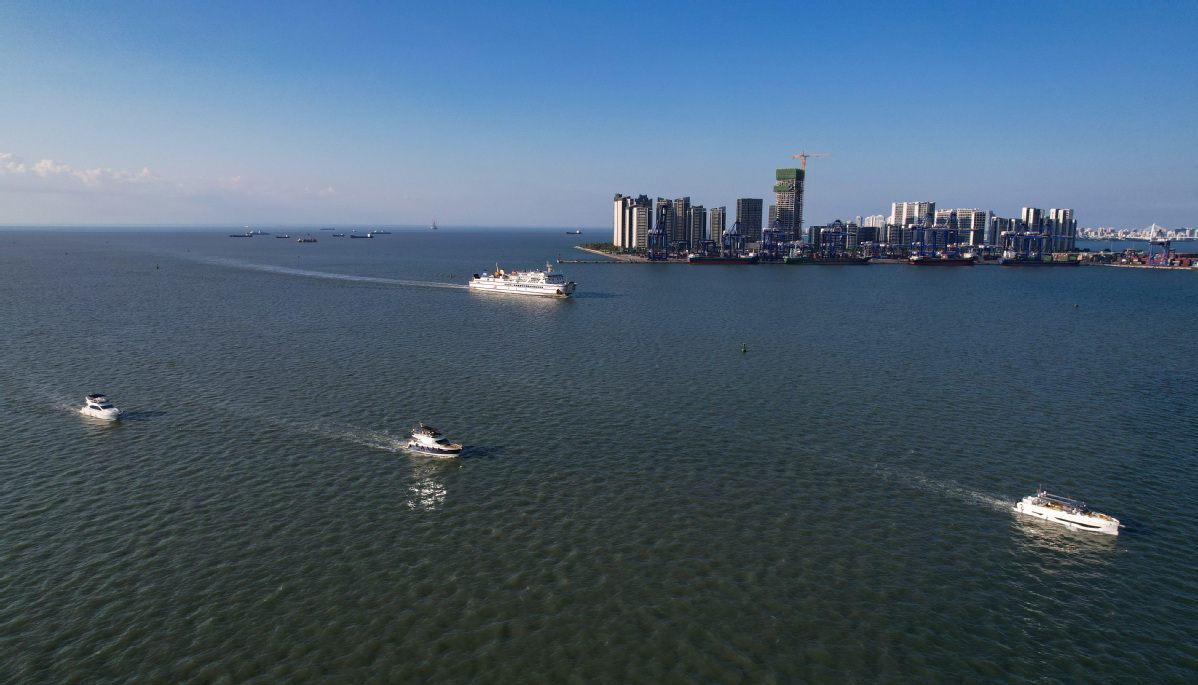
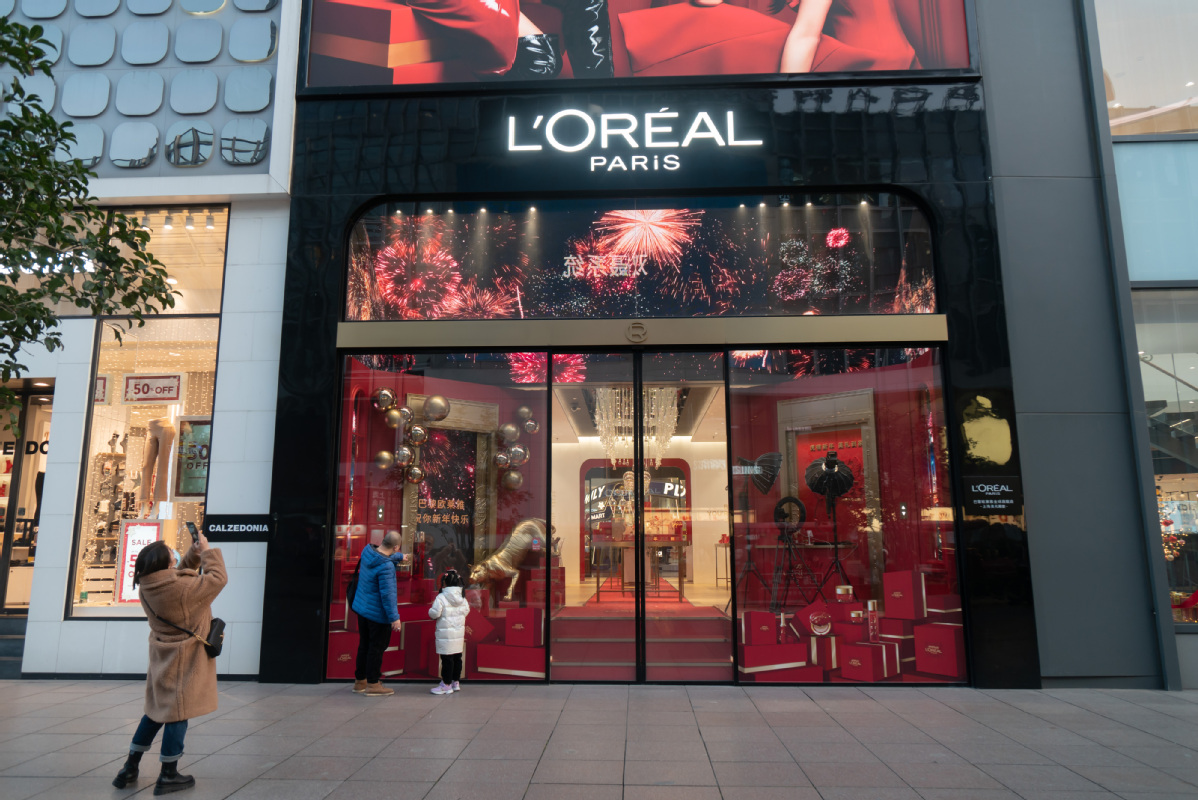
PARIS -- The ongoing China International Consumer Products Expo (CICPE) in the southern Hainan province, as a signal of China's greater opening-up, is of great significance and contributes to promoting consumption, said the chief executive officer of L'Oreal China, one of the leading French brands present at the expo.
"The CICPE helps promote high-level opening-up, contributes to dual circulation new development pattern by enabling global consumer product brands to get access to China's huge consumption market, and facilitates consumption upgrading and consumption return," said Fabrice Megarbane, who is also the president of L'Oreal North Asia Zone, in an interview with Xinhua on Tuesday.
China has a dynamic market, in terms of both scale and growth speed, with a strong digital ecosystem enabling "online + offline" shopping experience, and Chinese consumers are the most sophisticated consumers in the world, noted Megarbane.
"The development of open innovation has contributed to a dynamic market in China and indeed China has a unique open innovation ecosystem," he said.
Bringing its 16 brands to the expo for the second time, L'Oreal Group will release a number of debut products in Hainan this week.
"Hainan province's strategic position helps unleash the great potential of the Chinese consumption market," said Megarbane, adding that "Hainan's newly upgraded duty-free consumption policy and free trade port policy have accelerated the boom of the beauty industry."
He believed that the CICPE will help the Hainan free trade port become a circulation place for domestic and foreign goods and factors, boost consumption and promote the high-quality lifestyle in local and international markets.
The six-day expo has attracted 1,107 overseas companies and 1,643 brands from 61 countries and regions, as well as over 1,200 domestic brands.
As the guest-of-honor country, France brought some 50 enterprises with 244 brands to the expo, covering fragrance, clothing, jewelry, food, wine, and trade in services.
"As a French company, L'Oreal expect to see more economic and trade cooperation between the two countries," said Megarbane.

Launch of new products confirms consumption's big role in growth
Rising multinational companies are debuting their new products, technologies and solutions at the ongoing China International Consumer Products Expo in Haikou, Hainan province, saying recent disruptions and headwinds have "never shaken (their) confidence" in China's economic prospects and that they will continue to invest in the country.
Industry experts interpreted MNCs' enthusiasm as a reflection of the huge potential of China's consumption market and the major role of consumption in driving further economic recovery both at home and abroad.
"We felt the positive effect of China's further opening-up at this year's expo, which also gives us full confidence in the future development of the Chinese market," said Kentaro Fujiwara, CEO of cosmetics giant Shiseido China.
Fujiwara said that China's consumption market offers an opportunity for Shiseido to continue to establish its presence in the local market and demonstrate the power of both the beauty industry and innovation.
As the first international beauty company to enter China, Shiseido has been based in the country for more than 40 years. The company has never lost its confidence that the local market deserves sustained investments, Fujiwara said.
Huang Wenkai, vice-president of KPMG China, said consumption plays a significant role in driving the country's economic development, and also in expanding demand. Therefore, promoting consumption is key to the nation's economic transformation.
"Thus, the country's further opening-up and establishing platforms for global consumer goods enterprises to enter the Chinese market will help boost confidence of manufacturers and consumers and inject momentum into the recovery and growth of the world economy," Huang said.
According to the Hainan expo's organizer, more than 600 new products, technologies and services from over 60 countries and regions made their debut this year.
Shiseido launched as many as 19 new brands and products, including Sidekick, a new luxury skin care brand for men.
It also launched the industry's first sun dual-care technology, which it claims transforms harmful ultraviolet radiation into beautifying elements that are beneficial for the skin.
"China is now Shiseido's largest overseas market. We continue to be optimistic about China's economic development prospects and consumption market potential," he said.
Member countries of the Regional Comprehensive Economic Partnership are also beneficiaries of the expo, thanks to trade facilitation policies of the Hainan Free Trade Port.
According to the local government, the Hainan Free Trade Port has implemented more than 180 policy documents to widen market access and promote trade facilitation and liberalization as of the beginning of July.
The documents include a positive "zero tariff" list for free trade port vehicles and yachts, a negative "zero tariff" list for cross-border trade in services and a catalog of encouraged industries.
"In recent years, the country's successful implementation of policies supporting the Hainan Free Trade Port has created new opportunities for the development of companies like us," said Saravoot Yoovidhya, CEO of Thailand beverage company TCP Group.
Yoovidhya recalled that his father actively responded to China's call for reform and opening-up by establishing the first overseas factory in Hainan in 1993, and since then, the Thai company has entered other locations in the China market.
"The company has placed the Chinese market at the heart of its strategy. We look forward to continuing and deepening our presence in the China market and bringing more high-quality products to local consumers," he said.
He emphasized that the RCEP agreement taking effect on Jan 1 has imparted added momentum to the development of the comprehensive and strategic bilateral partnership.
Contact the writers at chengyu@chinadaily.com.cn
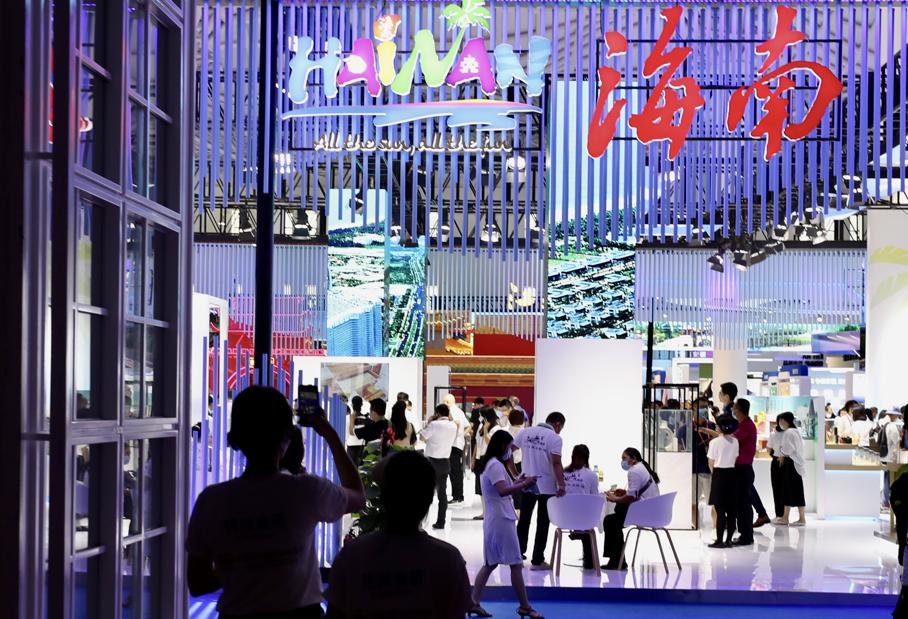
The second China International Consumer Products Expo kicked off on Monday in Haikou, Hainan province, attracting more than 2,800 boutique brands from 61 countries and regions.
The event, said to be the largest of its kind in the Asia-Pacific region, offers opportunities for common prosperity despite the complex international situation, officials said. About 40,000 buyers and professional visitors are expected to attend the expo, which will end on Saturday.
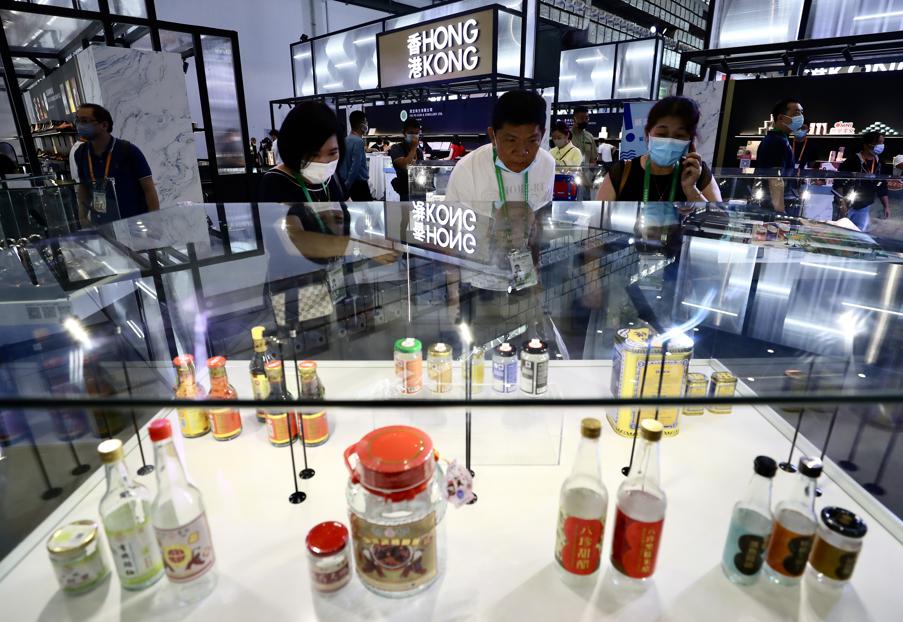
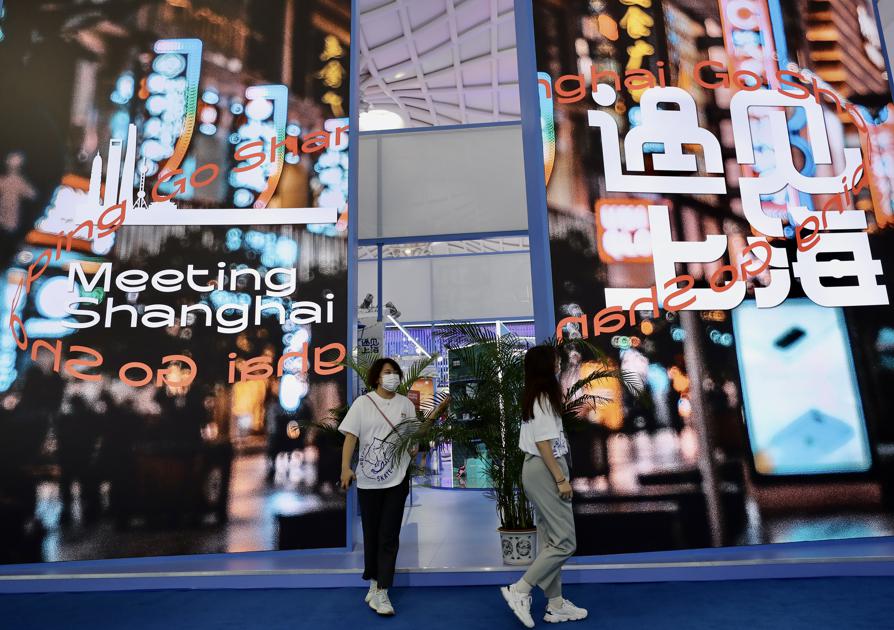
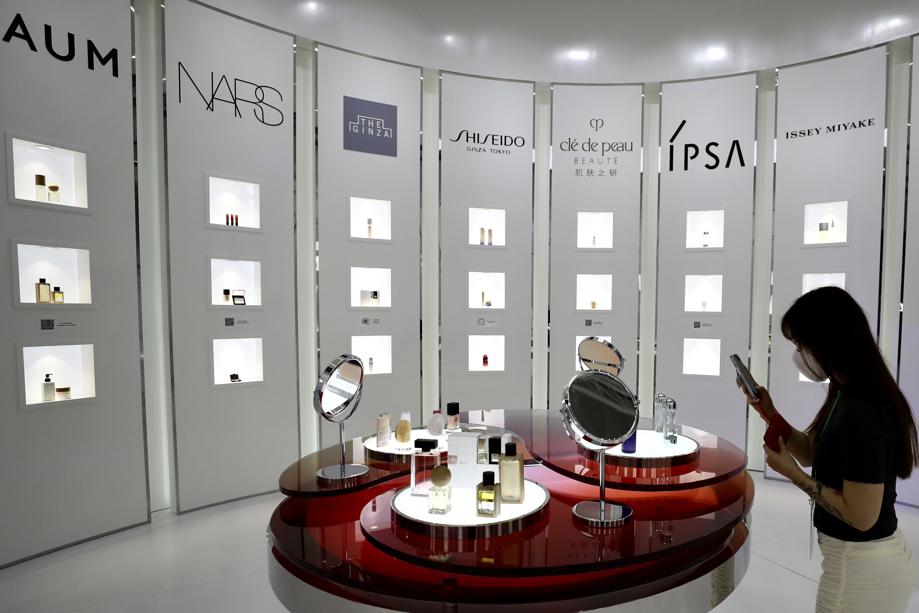
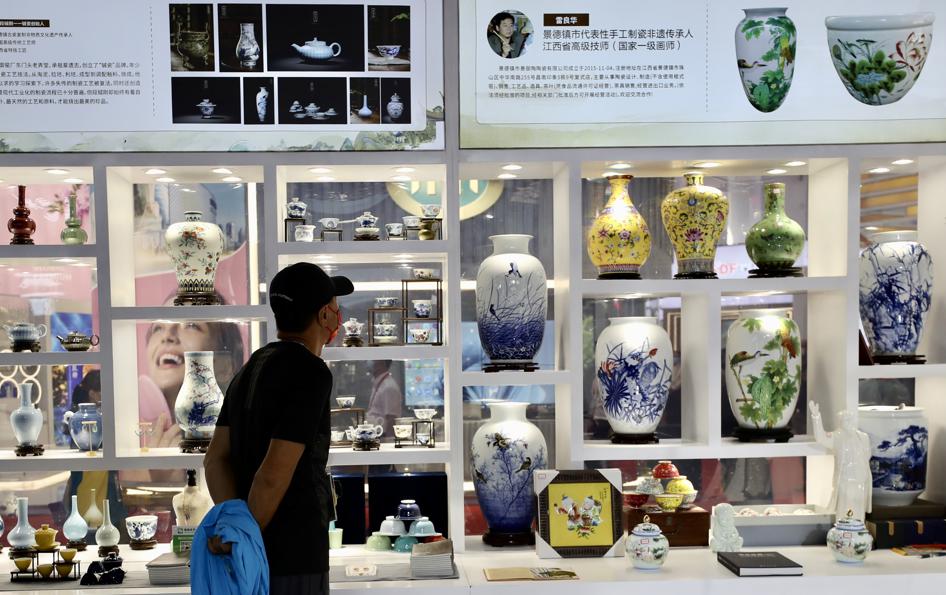
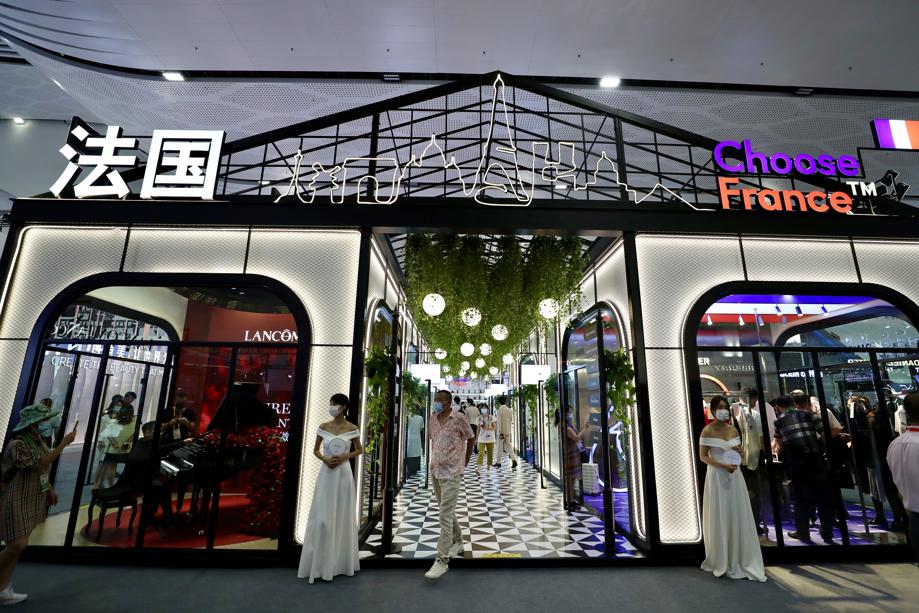
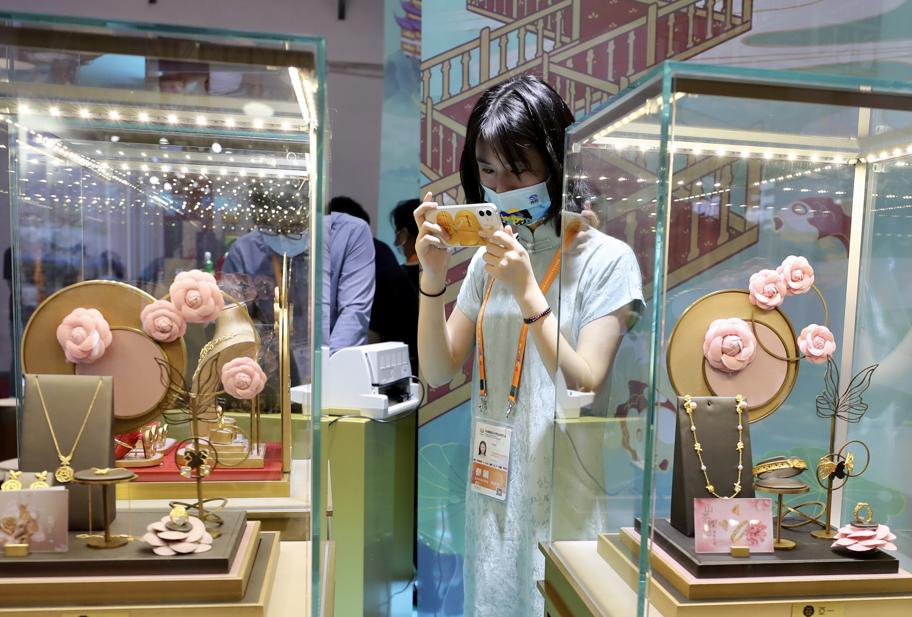
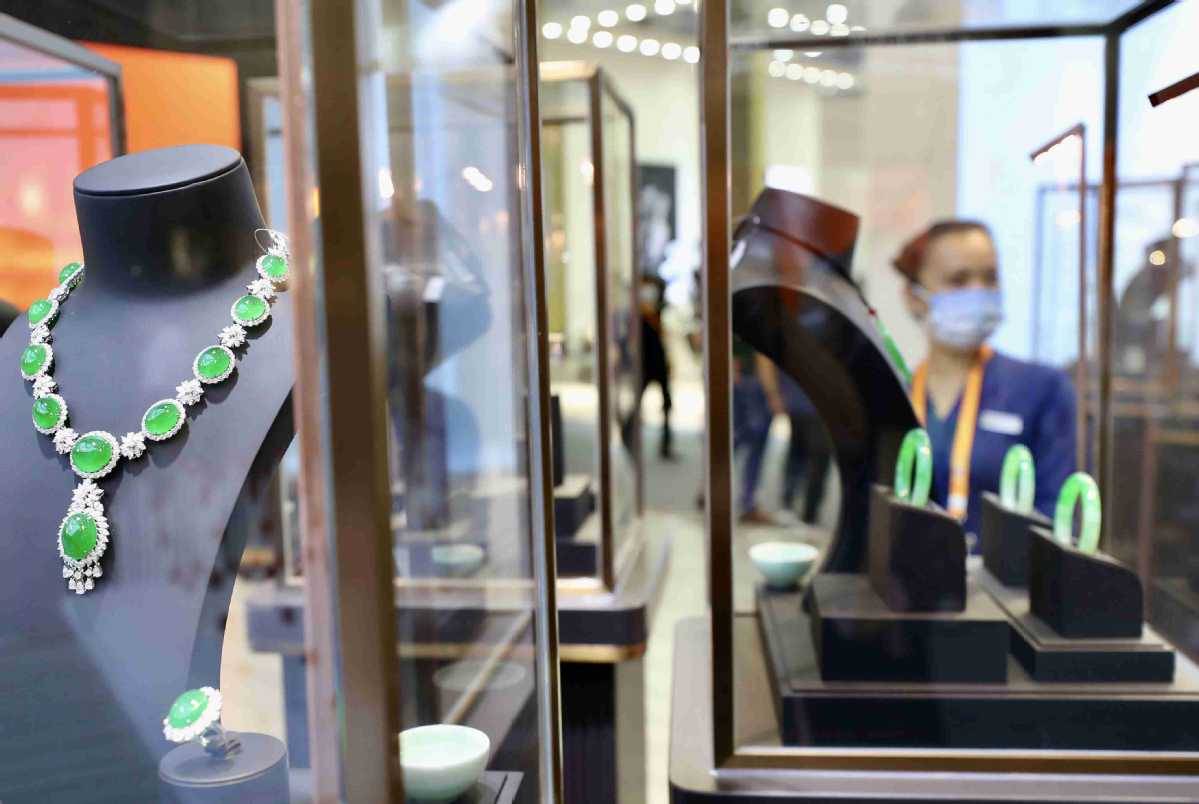
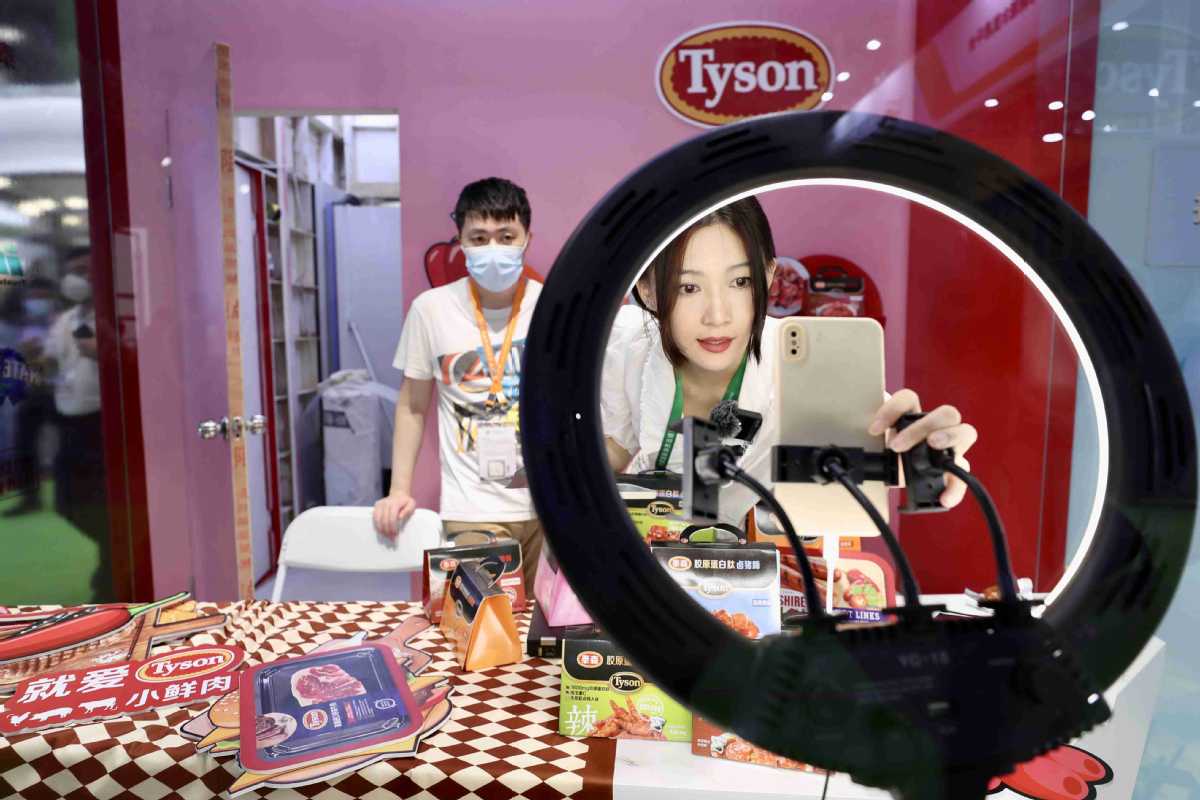
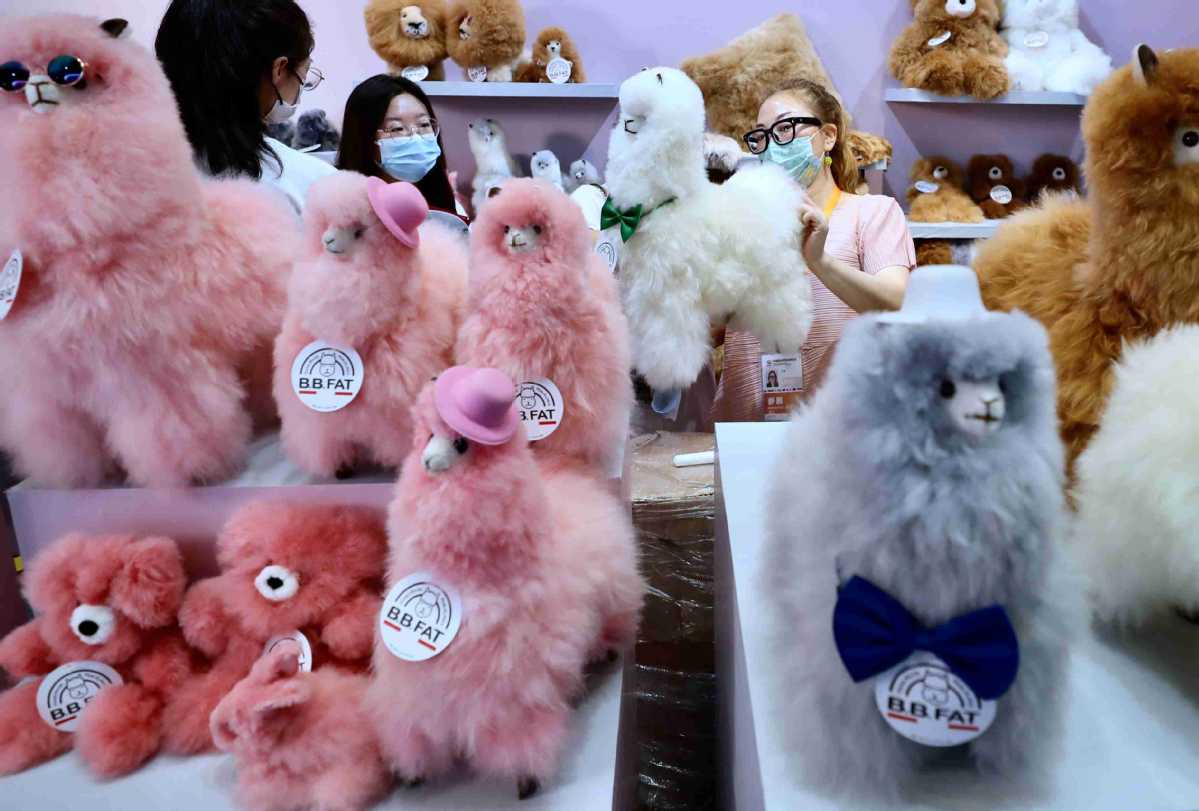

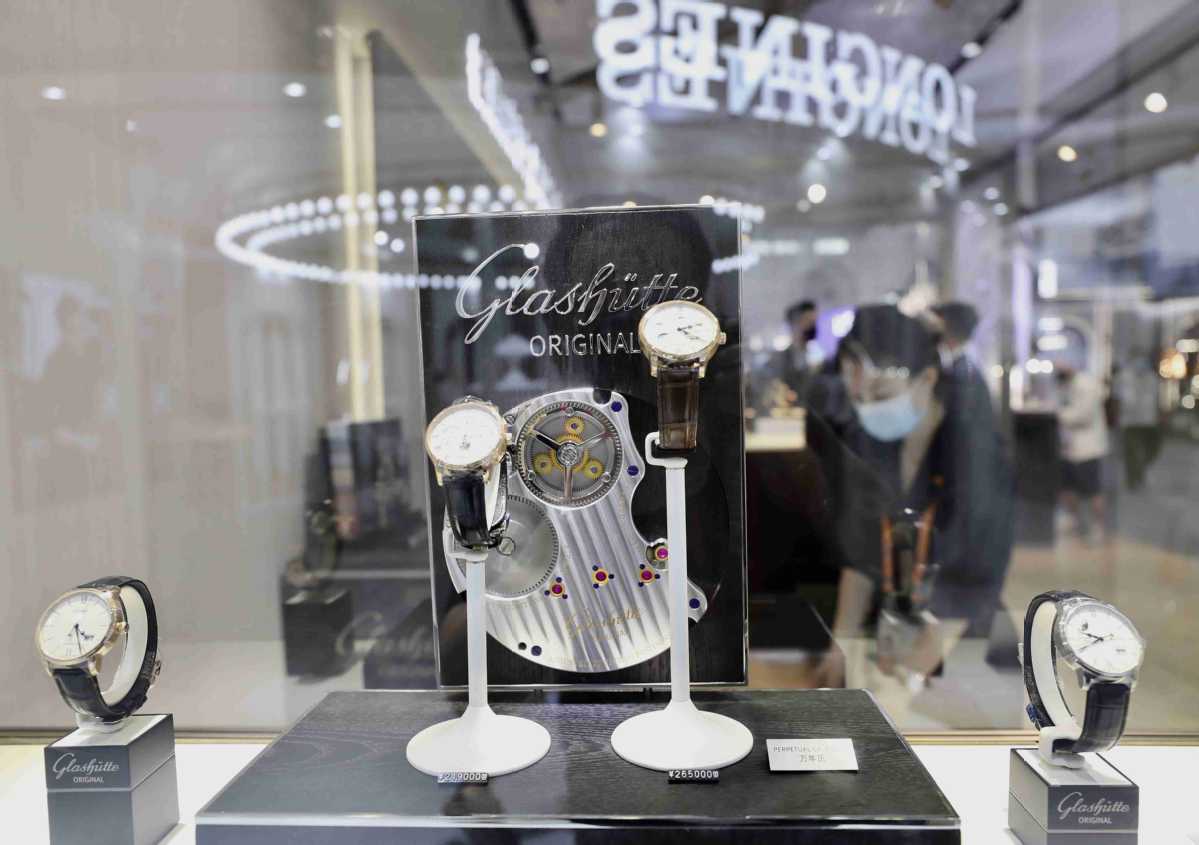


CAIRO -- The second China International Consumer Products Expo (CICPE) will help promote global economic recovery and growth, an Egyptian researcher has said.
The Expo opened Monday on China's resort island of Hainan, presenting a unique platform for global consumer products companies to access the Chinese market.
"The exhibition contributes to the growth and recovery of the global economy from the repercussions of the COVID-19 pandemic and enables China to provide more high-quality consumer products to the international business community," Abu Bakr al-Deeb, advisor to the Cairo-based Arab Center for Research and Studies, told Xinhua in a recent interview.
The expo also contributes to promoting global trade in consumer goods and linking local and international markets to encourage double trading and push global economic recovery against the headwinds of the COVID-19 pandemic, said al-Deeb, an expert in international relations and political economy.
The six-day expo has attracted 1,107 overseas companies and 1,643 brands from 61 countries and regions, as well as over 1,200 domestic brands.
With a larger exhibition area, more participating brands, and a special focus on new and quality products, the expo remains the largest consumer boutique exhibition in the Asia-Pacific region.
"The exhibition works to provide investment, commercial and marketing opportunities to all countries to enter the huge Chinese market. This will notably contribute to developing consumption and enhancing the confidence of foreign consumer companies to invest in China," he said.
The global platform of displaying and trading high-end consumer products showcases China's pledge of a higher level of opening-up.
"The exhibition represents China's policy of continuing opening up to the world. Hainan (free trade) port enjoys duty-free marketing policies and enjoys international medical care and international education, making the port an international symbol of free trade," al-Deeb pointed out.
Given the current stagnation in the global economy and the movement of international trade, he said, countries and companies around the world are looking for new marketing and trade opportunities, which means an increase in demand for participating in the exhibition.
The expo is an opportunity for Egyptian and other Arab and African companies to increase trade and investment exchange with China, al-Deeb said.
"The exhibition shows China's ability to organize such a major event despite international conditions, the risks of stagnation and slowdown that threaten the global economy, damage supply chains, and global economic and trade pressures witnessed by most countries of the world," the Egyptian researcher noted.
He stressed that more participating companies and larger exhibition area contribute to the success of the last year's edition.
"I believe this year's edition will be a great success," al-Deeb said.
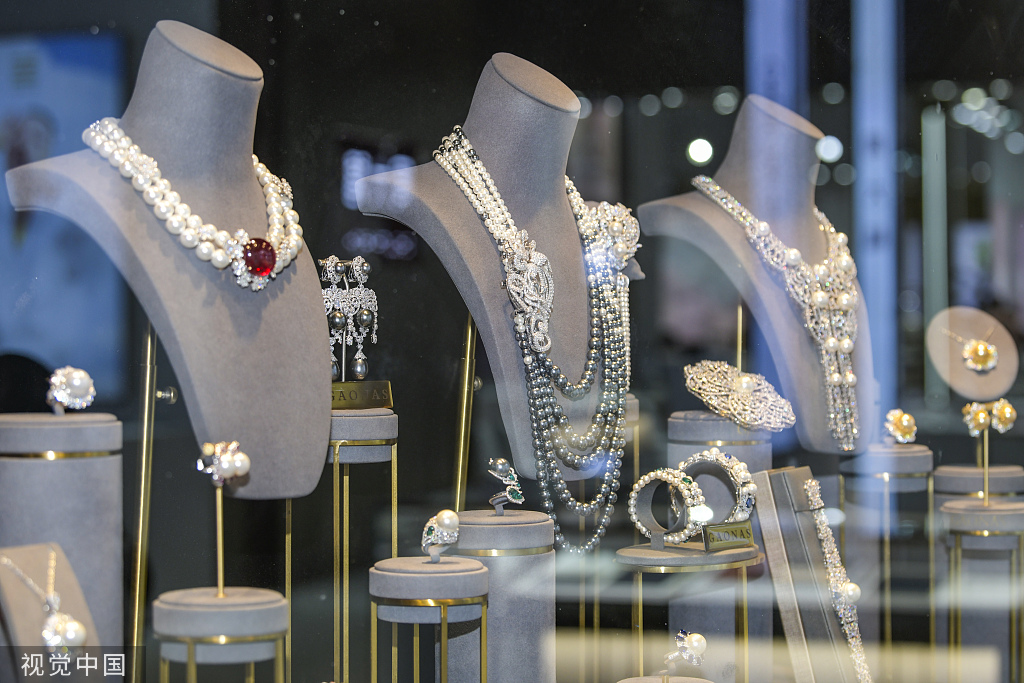
The second China International Consumer Products Expo, which kicked off on Monday in Haikou, capital of South China's Hainan province, has attracted 1,107 overseas companies and 1,643 brands from 61 countries and regions, as well as over 1,200 domestic brands.
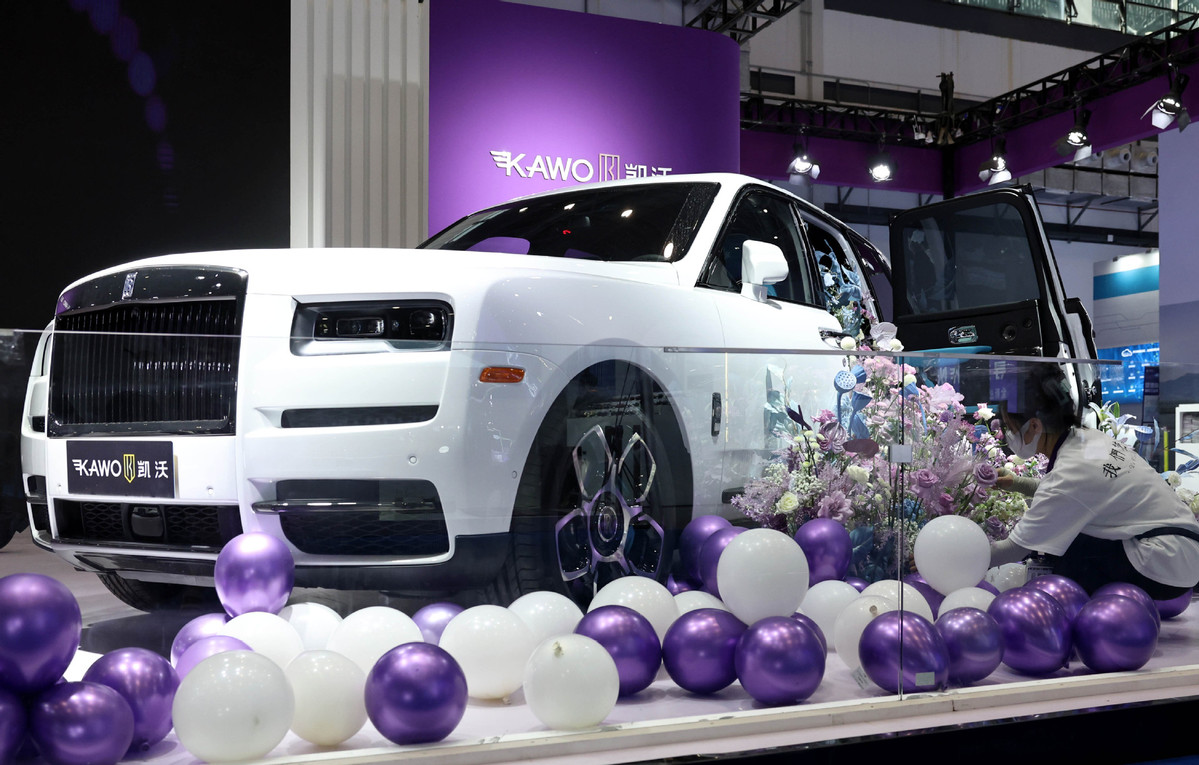
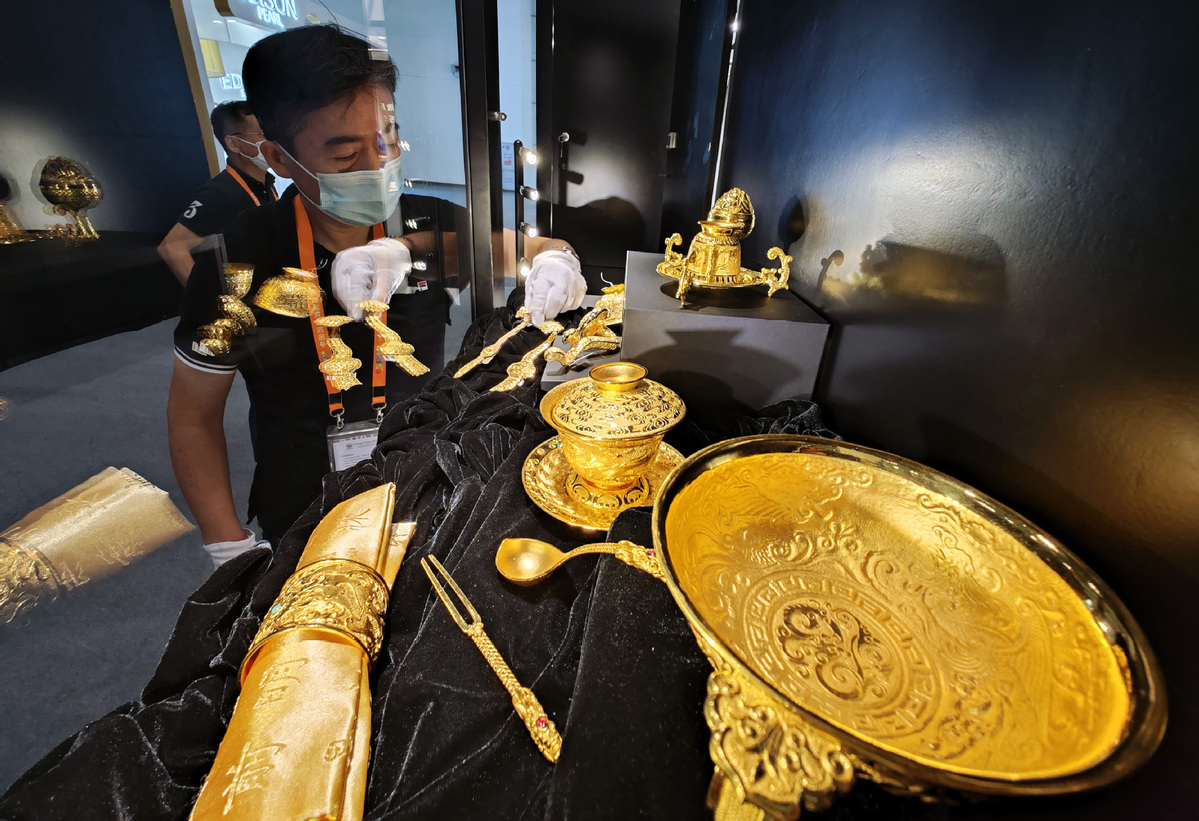
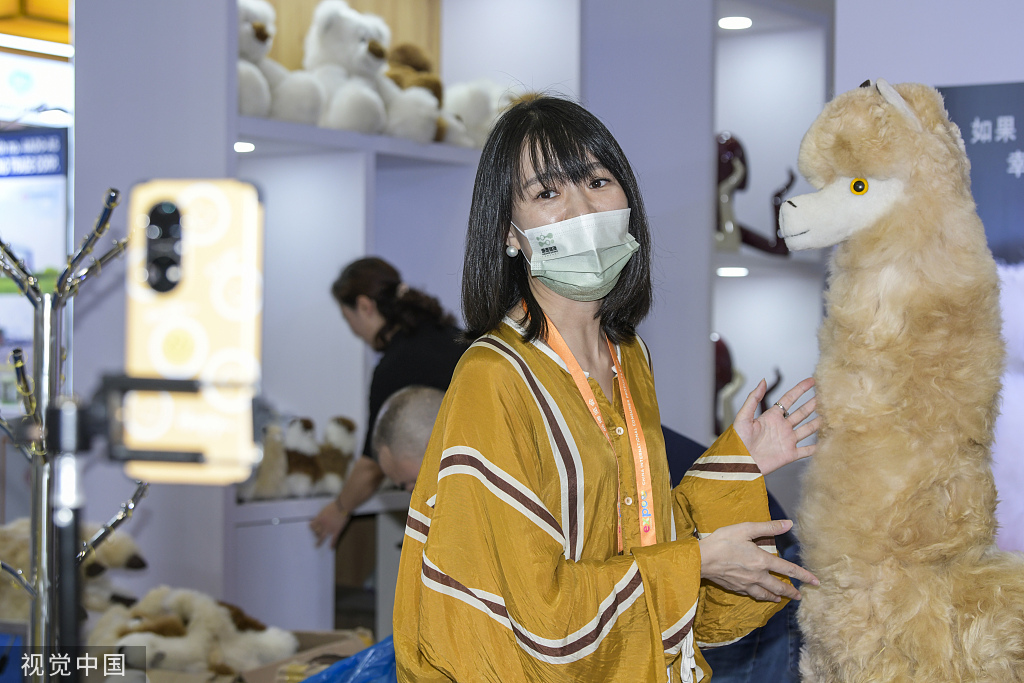

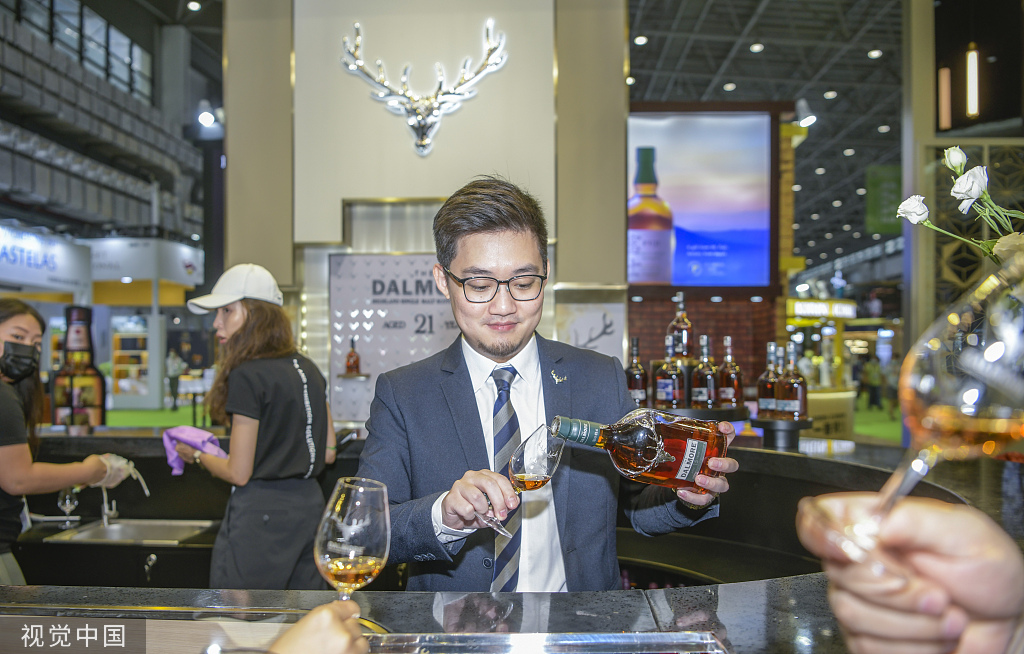
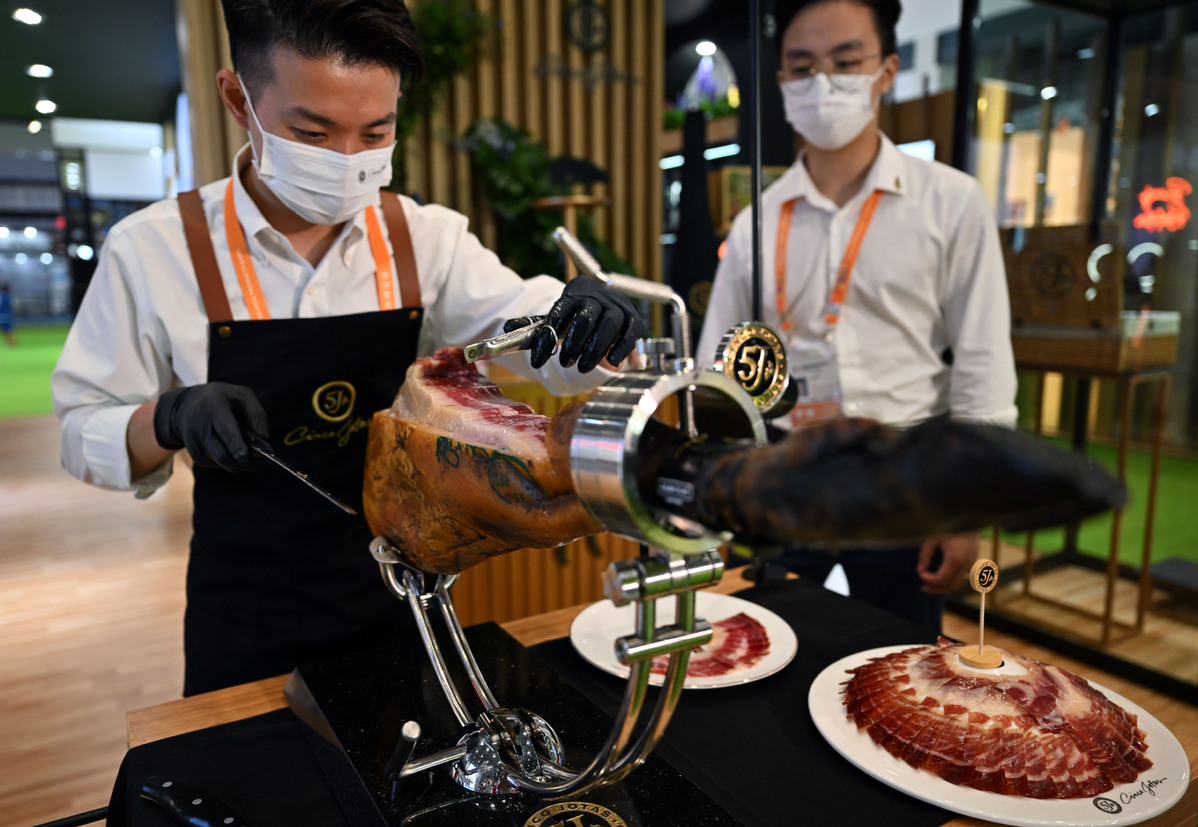
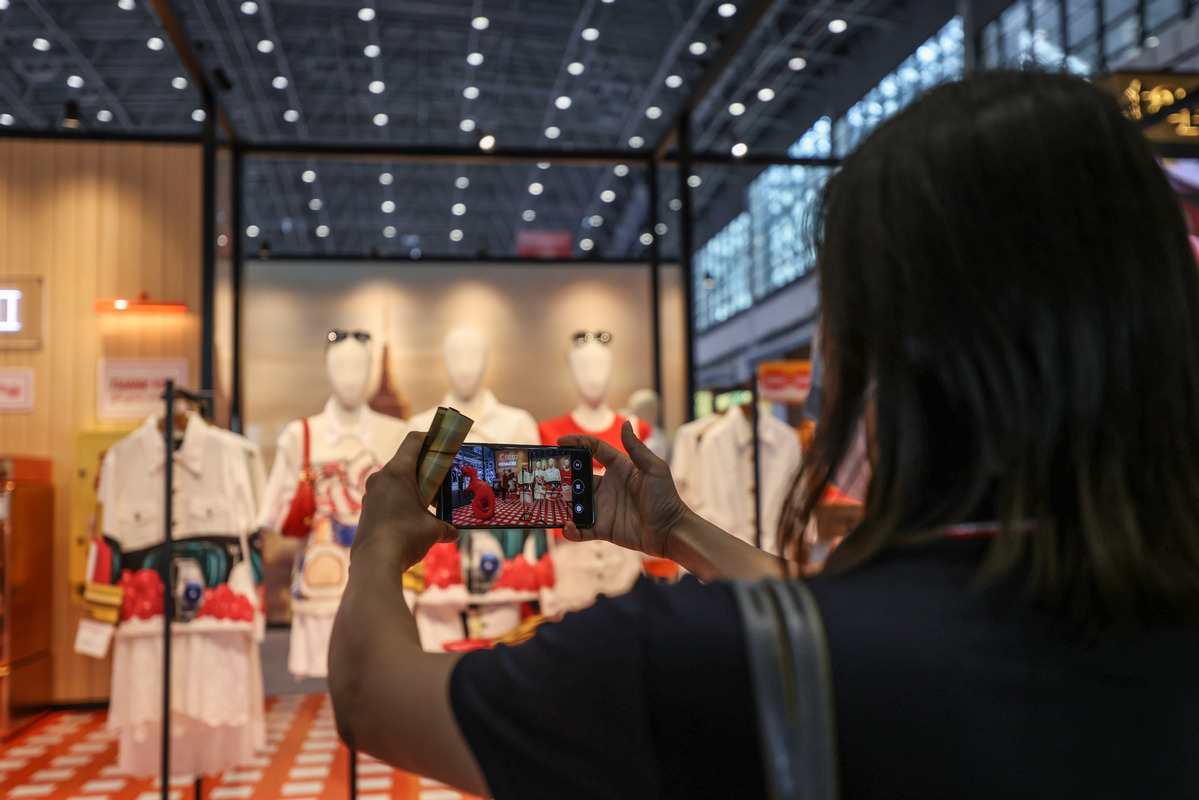
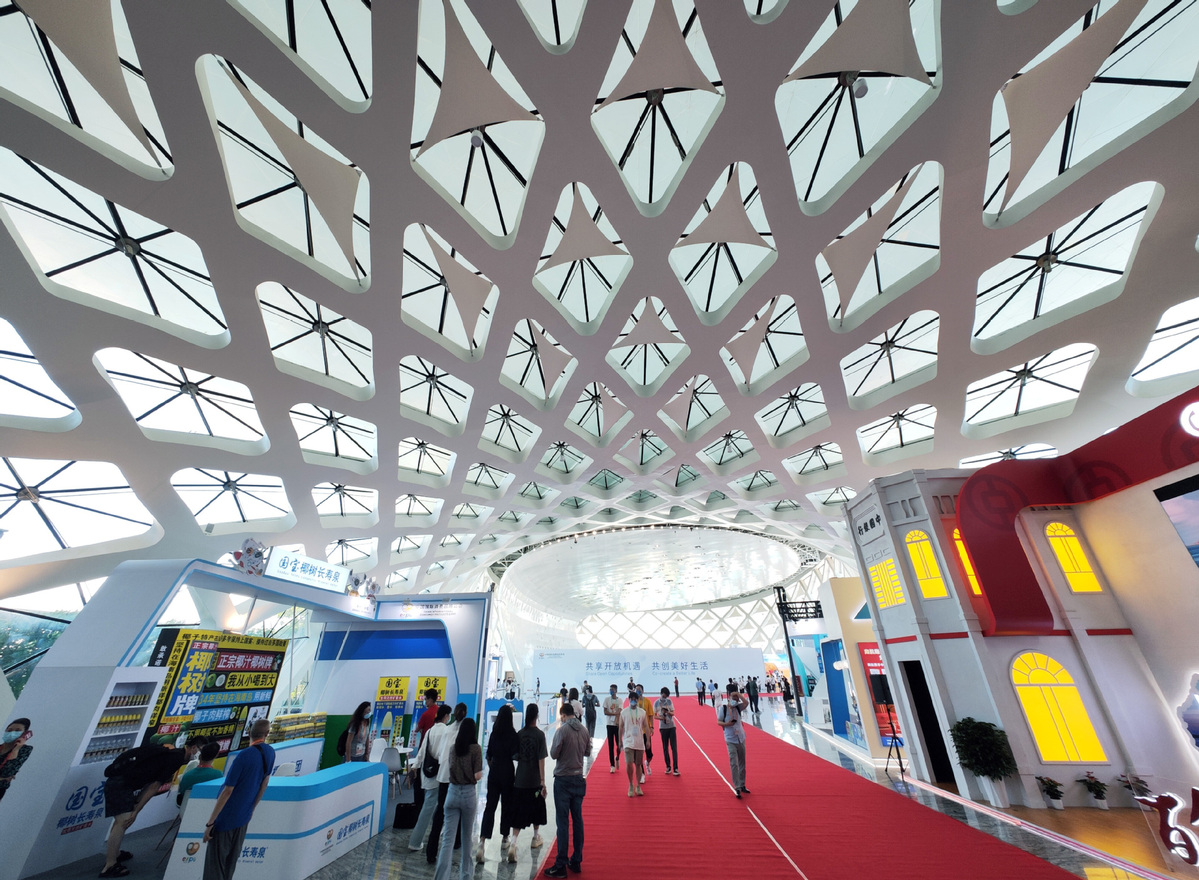

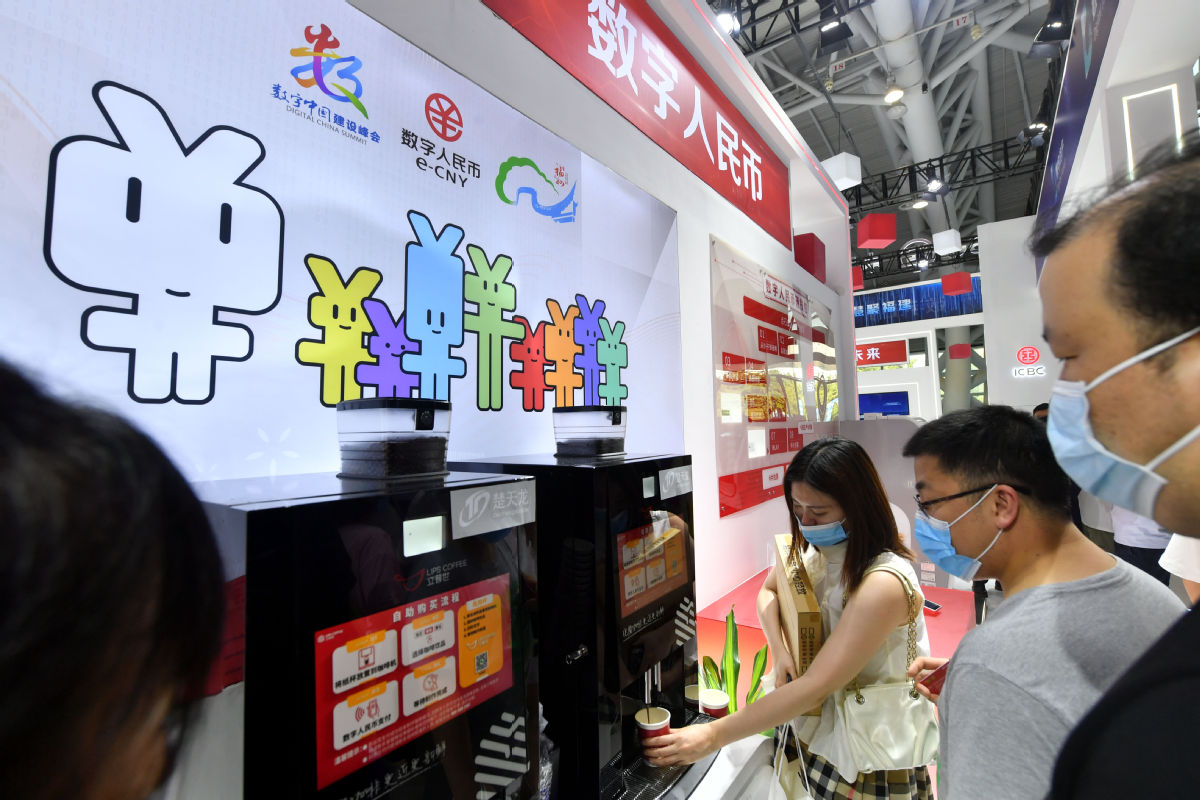
Digital Renminbi Industry Alliance unveiled during Fuzhou forum
An industry organization has been established to promote the development of the digital renminbi industry in China, with technology heavyweights such as Huawei Technologies Co and banks such as Industrial Bank Co Ltd among its first batch of 37 members.
The move comes as China expands digital renminbi trials in more cities and aims to build a robust ecosystem for its digital currency.
The organization, translated as the Digital Renminbi Industry Alliance, was unveiled on Sunday at a forum of the fifth Digital China Summit in Fuzhou, Fujian province.
The alliance was jointly initiated by Huawei and Newland Digital Technology Co Ltd, a Fuzhou-based company that has been involved in trials of digital renminbi in many cities, and engaged in the internet of things devices such as point of sales, or POS machines and big data technologies.
Fan Yifei, deputy governor of the People's Bank of China, said at the Fuzhou forum that as pilot cities for digital renminbi operations, Fuzhou and Xiamen in Fujian province have seen rapid development in promoting its use in people's daily lives such as shopping, transportation and entertainment.
Meanwhile, the two cities came up with special application scenarios. Fuzhou, for instance, uses the digital currency to offer more convenient financial services for Taiwan province-based enterprises that do business with the Chinese mainland, including piloting the use of digital renminbi for currency conversion and tax payments, Fan said.
The central bank will support Fujian to explore its advantages in the digital renminbi industry, and create more application scenarios and business models, Fan said.
During the fifth Digital China Summit over the weekend, Fuzhou issued digital renminbi red envelopes worth 20 million yuan ($2.96 million) to spur consumption.
Wang Jing, director-general of the Digital Renminbi Industry Alliance and chairman of Newland Digital Technology, said the new alliance is dedicated to docking the development of digital renminbi with the nation's broader Digital China strategy, advancing the new information infrastructure for digital currency, and promote joint technical research, sharing of technology and knowledge in the area.
The alliance will promote joint innovation, as it can integrate resources from government agencies, financing institutions, research bodies and parties involved in promoting the application of digital currency, Wang said.
The alliance's members also include several State-owned banks, according to Newland Digital Technology which claimed itself as the second-largest supplier of POS machines for financial payments in the world. But it did not disclose details.
CITIC Securities said in a research note that digital renminbi, as the payment infrastructure in the era of the digital economy, will see wider use. The involvement of multiple parties will accelerate its development.
Mu Changchun, director-general of the Digital Currency Institute of the People's Bank of China, said digital renminbi can meet consumer demand of making payments anonymously.
As a legal digital currency, digital renminbi will fully respect privacy, ensure the protection of personal information, and do a good job in risk prevention, Mu said.
Data released by the central bank on July 13 showed that the digital renminbi pilot program has been expanded to 23 cities and areas in 15 provinces and municipalities. As of May, 31, a total of 264 million transactions had been carried out via digital renminbi amid the pilot cities and areas, with the cumulative transaction value hitting some 83 billion yuan. The number of stores that support digital renminbi payments has reached 4.567 million.
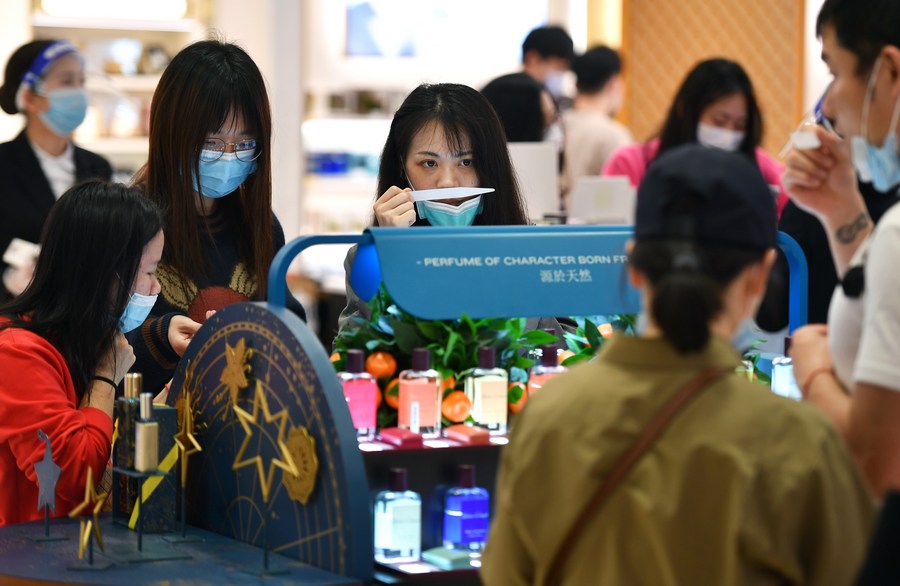
Golden business opportunities offered to global companies to expand market
Consumption upgrades are of vital importance to China's economic recovery this year and the country's high-quality development in the long run, providing golden business opportunities for global companies to thrive in its market, participants in a high-profile expo said on Monday.
French President Emmanuel Macron said via video link at the opening ceremony of the Second China International Consumer Products Expo that France considered it a great distinction to be the guest of honor at the expo in Haikou, Hainan province.
The European nation stands as one of the leading countries participating in the expo with more than 200 brands.
Trade between France and China is vibrant, and the two sides have been cooperating closely in such sectors as agriculture, healthcare, electronic products and luxury products, Macron said.
The French president stressed that as China is building Hainan into an international free trade port and making it a new international hub for high-quality products, French enterprises will fully support the plan and hope to contribute to its success.
This year, the expo has drawn the participation of over 2,800 brands from 61 countries and regions. More than 600 new products are making their debut on the global stage at the expo, which runs until Saturday.
Consulting and financial company Deloitte, a two-time participant in the event, said the expo will serve as an important platform to help promote the building of Hainan into an international tourism consumption center and a market platform of high-quality consumer goods.
The expo serves as an important way to promote and upgrade domestic consumption in China. It aims to help domestic consumers access more premium international products and create more business opportunities for companies around the world, said Zhang Tianbing, consumer products and retail sectors leader of Deloitte Asia Pacific.
Leung Chun-ying, vice-chairman of the National Committee of the Chinese People's Political Consultative Conference, said during the opening ceremony that despite the COVID-19 pandemic restraining the recovery of the global consumption market, the overall trend of consumption upgrades in China remains unchanged, and the nation's consumption scale is expanding.
China's continued effort to widen opening-up will inject strong impetus into the country's economic growth, Leung said.
Li Mingxing, a member of the 13th National Committee of the CPPCC and vice-chairman of the China Enterprise Confederation, said China's imports of consumer goods continue to increase strongly despite the pandemic, and will contribute to the stable recovery of the world's second-largest economy.
China's consumer market is second only to that of the United States. Last year, the total import value of consumer goods in China reached 1.73 trillion yuan ($256.4 billion), up 9.9 percent year-on-year, according to the Ministry of Commerce.
On Monday, French luxury goods company LVMH Group signed a memorandum of cooperation with the local government of Haikou. The company will officially launch its perfume and cosmetics tourism retail supply chain center in China at the comprehensive bonded area of Haikou.

HAIKOU -- The second China International Consumer Products Expo kicked off on Monday in Haikou, capital of South China's Hainan province.
The six-day expo has attracted 1,107 overseas companies and 1,643 brands from 61 countries and regions, as well as over 1,200 domestic brands.
The exhibition area has expanded to 100,000 square meters from 80,000 square meters last year, with the international area covering 80 percent of the total exhibition space.
As the guest country of honor, France participates in the expo with nearly 50 enterprises and 250 brands.
The expo will showcase over 600 new products from more than 200 brands, organizers said.
Co-hosted by China's commerce ministry and the Hainan provincial government, the expo is expected to attract more than 40,000 buyers and visitors.
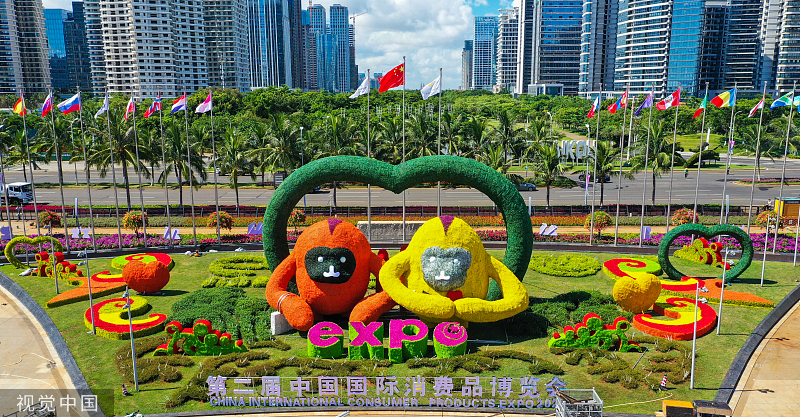
The second China International Consumer Products Expo underway in Haikou of South China's Hainan province from July 25-30 offers opportunities for common prosperity despite complex international situation, Xinhua reported on Sunday.
The total exhibition area of the second expo is 100,000 square meters this year, 20,000 sq m more than last year. The international exhibition area, covering an area of 80,000 sq m, has attracted more than 1,600 brands from 61 countries and regions. Over 600 new products are expected to be launched in this area.
The Chinese market is the growth engine of the L'Oréal Group, providing a driving force for innovation in areas such as digitalization and beauty technology, and China has therefore become the location of the group's new North Asia headquarters, said CEO Nicolas Hieronimus.
At this year's expo, the 20,000 sq m domestic exhibition area, including an additional 5,000 sq m domestic product boutique hall, has attracted more than 1,200 domestic brands.
The expo provides unlimited business opportunities for international brands to explore Chinese market, while introducing more domestic fashionable products to serve global consumers.
China will strive to make the expo an important platform for countries to expand trade, strengthen cooperation and promote development and sincerely welcomes enterprises from all over the world to ride on the express train of China's development, share the opportunities of the Chinese market and provide new growth impetus for the recovery of the global economy, said Sheng Qiuping, vice-minister of commerce.
Currently, China's consumer market is showing a trend of recovery and growth with strong consumption resilience and sufficient potential. China maintains long-term positive fundamentals of consumption development and general trend of consumption improvement and upgrading. Holding the expo will help to better promote consumption recovery and release potential, Sheng said.
China's further opening-up and establishing platform for global consumer goods enterprises to enter the Chinese market will help boost confidence of manufacturers and consumers and inject positive energy into the recovery and growth of the world economy, said Huang Wenkai, vice-president of KPMG China.
Members of Regional Comprehensive Economic Partnership showed great enthusiasm to participate in this year's expo. The total exhibition area of Japan, Korea and Malaysia has crossed 5,000 sq m in 2022, up 20 percent from last year.
The theme and positioning of the expo is highly consistent with the development direction of the Hainan Free Trade Port, which will play a positive role in accelerating the construction of the Hainan Free Trade Port, said Ni Qiang, vice-governor of Hainan province.
The expo will help speed up efforts to build Hainan Free Trade Port into an important intersection of domestic and international circulation, Ni added.
Since its inception in 2018, the Hainan Free Trade Port has adopted more than 180 policy documents to widen market access and promote trade facilitation and liberalization. The average annual growth rate of new market players has reached 40 percent, and the average annual growth of utilized overseas investment has grown 80 percent since 2018.
After the first expo, many international brands such as Omron of Japan, Dell of the United States, and Delvaux of Belgium seized the new opportunity in Hainan island and set up duty-free experience stores in Hainan.
More exhibitors will be guided to set up regional headquarters, open the first brand store, and spur the domestic market based on the policy advantages of Hainan Free Trade Port, said Xu Xingfeng, director general of the Commerce Ministry's Department of Market Operation and Consumption Promotion.
South China's Hainan province launched first round of voucher issuance activities from April 28 to accelerate consumption recovery. The provincial government also decided to add 100 million yuan ($14.8 million) to take advantage of CICPE, China Securities Journal reported on Monday.
About 60 percent of the funds will be used to issue tax-free consumption coupons for outlying islands; around 30 percent will be used to issue consumption vouchers in areas such as catering and retail; and about 10 percent will be used to issue home appliance consumption vouchers, the report said.
China has demonstrated its determination to open its door further to share opportunities and create a better future for common prosperity by holding a series of high-level business events, including China Import and Export Fair, China International Fair for Trade in Services, China International Import Expo, and China International Consumer Products Expo.
